Welcome to Good Market Info!
Click the logo to return to the Good Market app
Welcome to Good Market Info! Click the logo to return to the Good Market global app.

Welcome to the 51 social enterprises, cooperatives, responsible businesses, civic organizations, and networks that became Good Market approved in March 2022! This month’s roundup includes new community members from Indonesia, Sri Lanka, India, Oman, Palestine, the United Kingdom, Senegal, Kenya, South Africa, and the United States. More than 2,162 enterprises across 78 countries are now part of the Good Market commons.
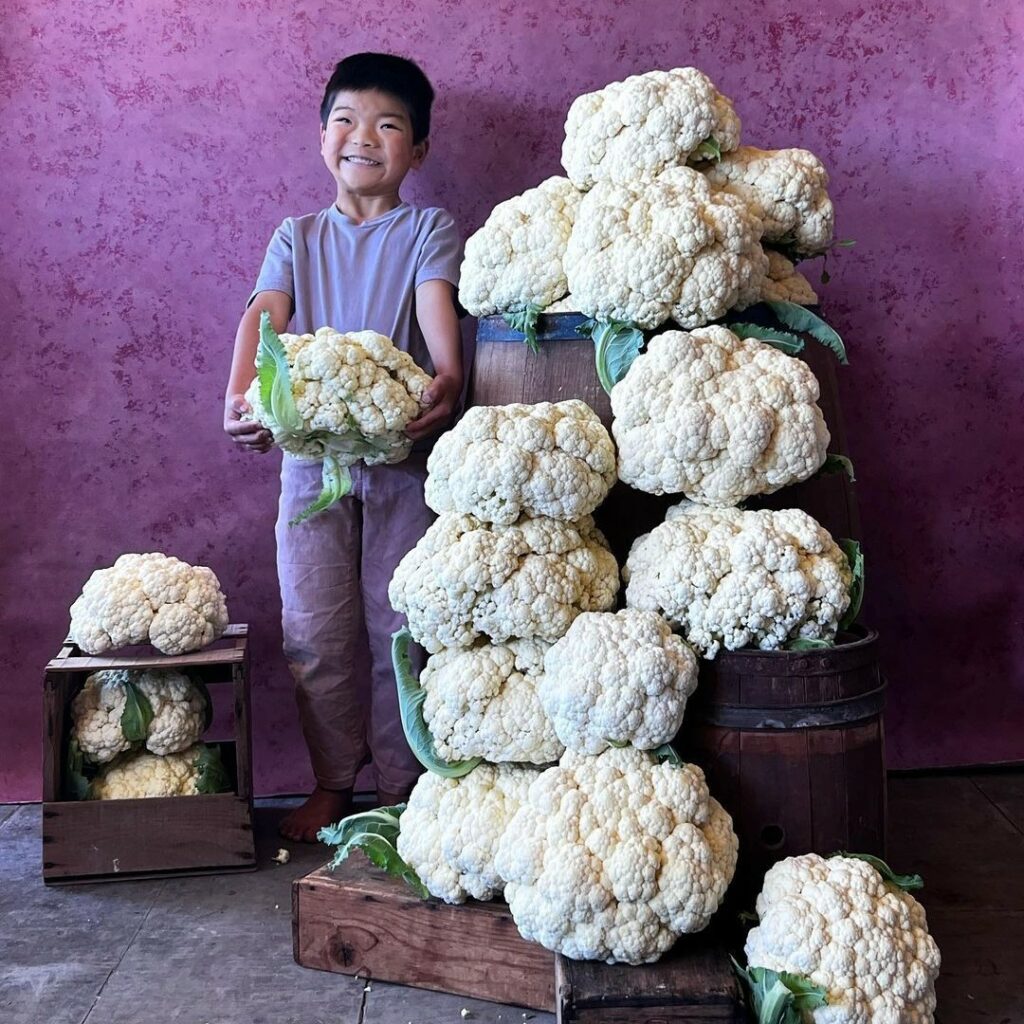
Mansfield, Missouri, United States
Baker Creek aims to keep heirloom varieties alive for future generations and provide the seeds of a sustainable food supply for everyone. They believe that farmers, gardeners, and communities have the right to save their own seed, and in so doing preserve seed diversity and food security in an age of corporate agriculture and patented, hybridized, or genetically modified seeds. Baker Creek offers more than 1,300 heirloom seed varieties. All seeds are open pollinated and can be saved, shared and traded. Their headquarters in Mansfield, Missouri includes trial gardens, greenhouses, a pioneer village, and a seed store. They also operate a seed store in Petaluma, California. In 2000, Baker Creek began hosting festivals as a way to bring gardeners, homesteaders, and natural foods enthusiasts together to exchange ideas and seeds, learn from renowned experts, and enjoy vendors, old-time music, and more. A significant portion of their annual profits goes toward providing food, emergency aid, sustainable development, and education to people in the United States and abroad. They also provide free seeds to hundreds of community and educational groups
www.goodmarket.global/bakercreek
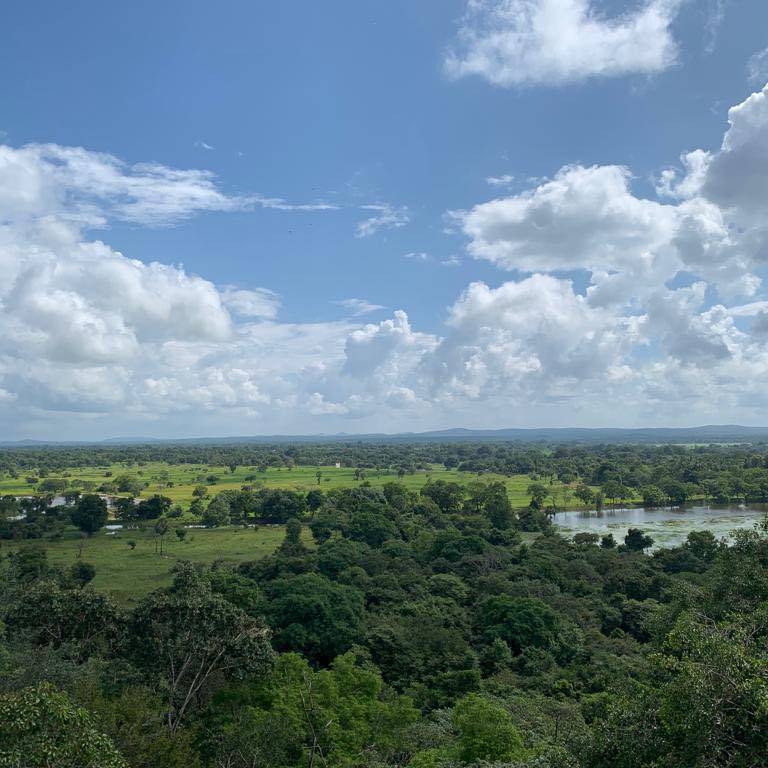
Horowupotana, Sri Lanka
Amadiya is a 110-acre organic permaculture farm in north central Sri Lanka with two large water reservoirs and 50 acres of protected forest. They are committed to crop diversity and cultivate multiple varieties of traditional heirloom rice as well as fruits, vegetables, legumes, and leafy greens. The farm team is using cover crops, compost, chicken, goat, and cow manure, and natural liquid fertilizers to build soil quality. They also use pest repellent plants and biopesticides made from locally sourced ingredients. Amadiya plans to offer farm visits and training programs on permaculture design and organic farming. They provide farm products to workers at wholesale rates, offer scholarships for local schoolchildren, and contribute to community events. Amadiya is verified under a local organic participatory guarantee system (PGS) and is part of Owita, ABBA Agri, and the Multinational Exchange for Sustainable Agriculture (MESA).
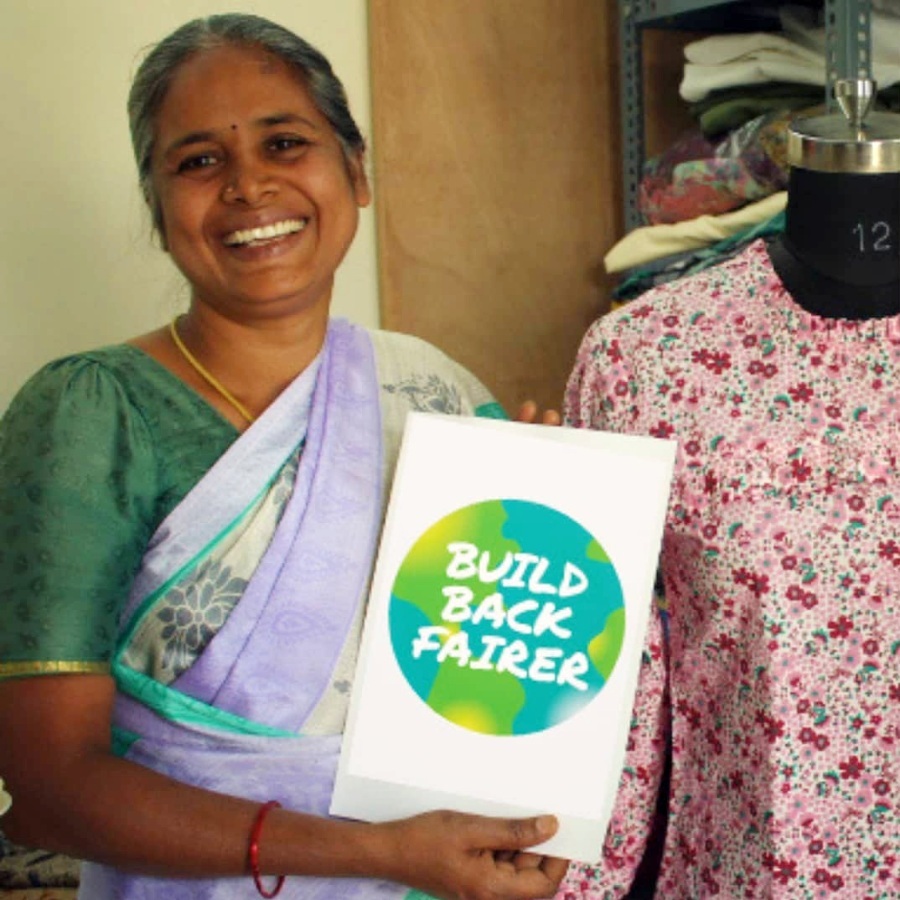
New Delhi, India
Fair Trade Forum India is a national network for fair trade that includes more than 250,000 artisans and farmers through more than 100 member organizations. They raise awareness about fair trade principles, promote sustainable production and consumption, organize trainings, workshops, seminars, and other capacity building programs, develop market opportunities, and advocate for fair trade policies that benefit marginalized producers. Their Fair Trade India brand was launched in 2010 to build the domestic market for fair trade products and create a common identity for retail shops owned by Fair Trade Forum India members. They partner with mission-aligned organizations and networks to expand services for member organizations and their producers. Fair Trade Forum India is registered as a not-for-profit organization. They are a member of the World Fair Trade Organization (WFTO).
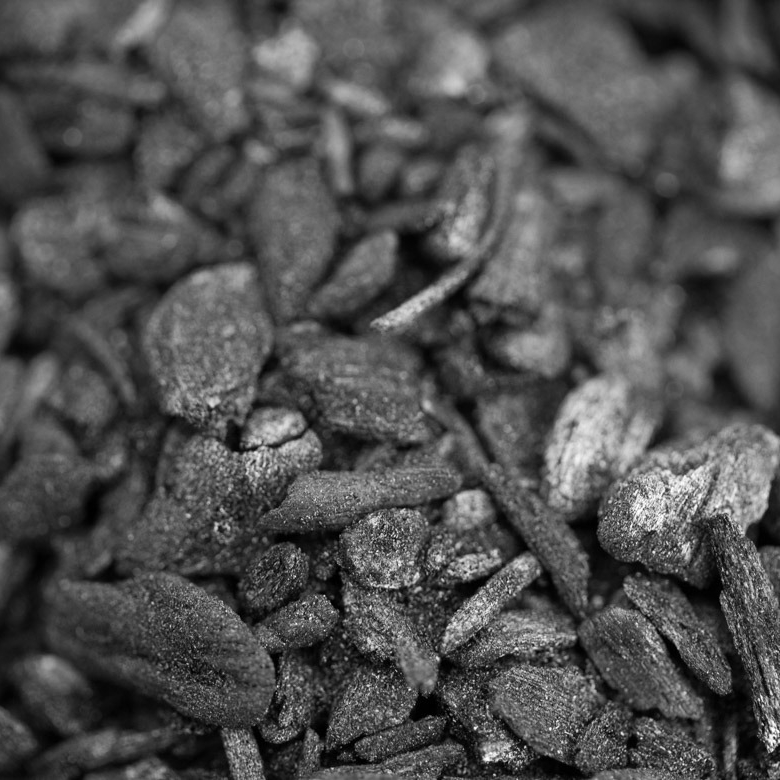
Long Beach, California, United States
Thanks a Ton provides a platform for people to learn about and engage with carbon dioxide removal (CDR) in a fun and gratitude-rich environment. They make it possible to buy a digital thank you card that removes one ton of carbon dioxide from the atmosphere. Different methods of CDR have different prices based on the actual cost of removing and storing a single ton. Current options include soil carbon sequestration through Nori, reforestation through Forestry Partners, mineralization through greenSand, biochar through Pacific Biochar, and bio-oil through Charm Industrial. Thanks a Ton recognizes that multiple CDR techniques will be needed to address the scale of the challenge. Supporting early stage solutions now will accelerate testing and bring down costs. By making carbon removal more accessible, Thanks a Ton raises the bar for “net zero” and helps people understand the difference between avoiding future emissions and cleaning up the mess that has already been made.
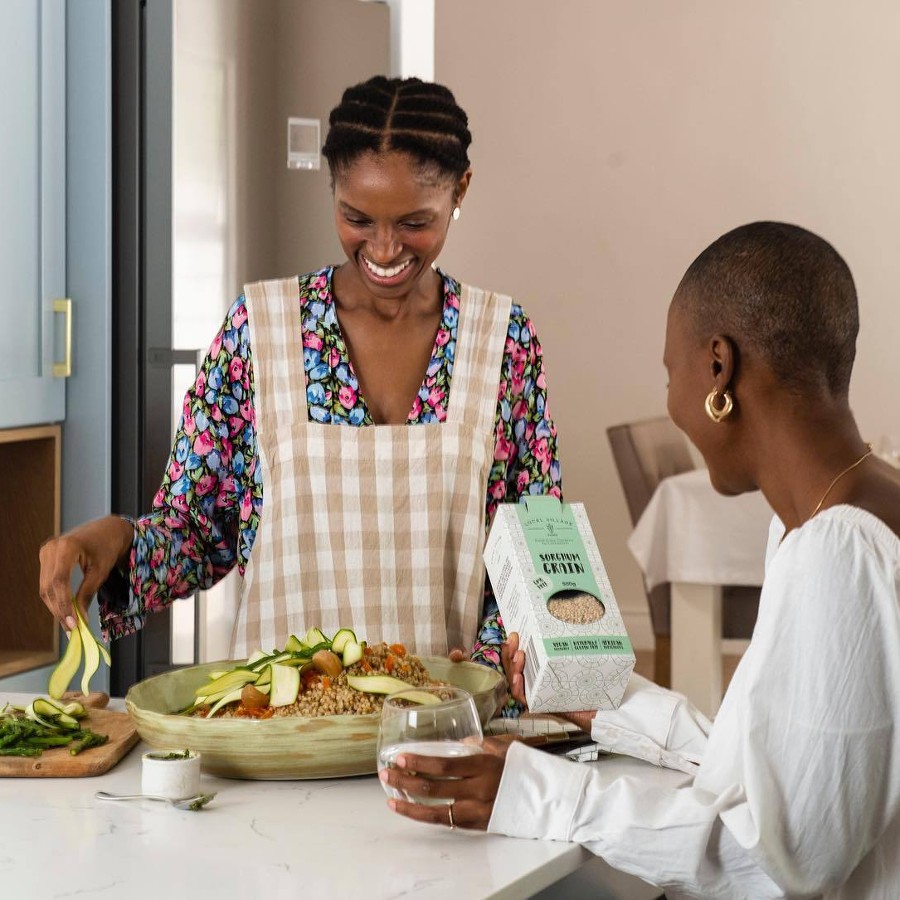
Midrand, South Africa
Local Village Foods supplies equitably sourced and sustainably grown African ingredients including ancient grains, superfoods, gluten-free flours, pastas, legumes, and snacks. They aim to be part of a healthier food system, a living value chain that connects our diverse humanity, our traditions, and cultures through food. Local Village Foods sources from agripreneurs and small-scale producers throughout Africa and focuses on indigenous, locally adapted crops with minimal water requirements like fonio, teff, sorghum, tiger nuts, bambara ground nuts, baobab, amaranth, and moringa. They use their platform to share recipes and raise awareness about African ingredients. Local Village Foods is part of Nourishing Africa and Value for Her.
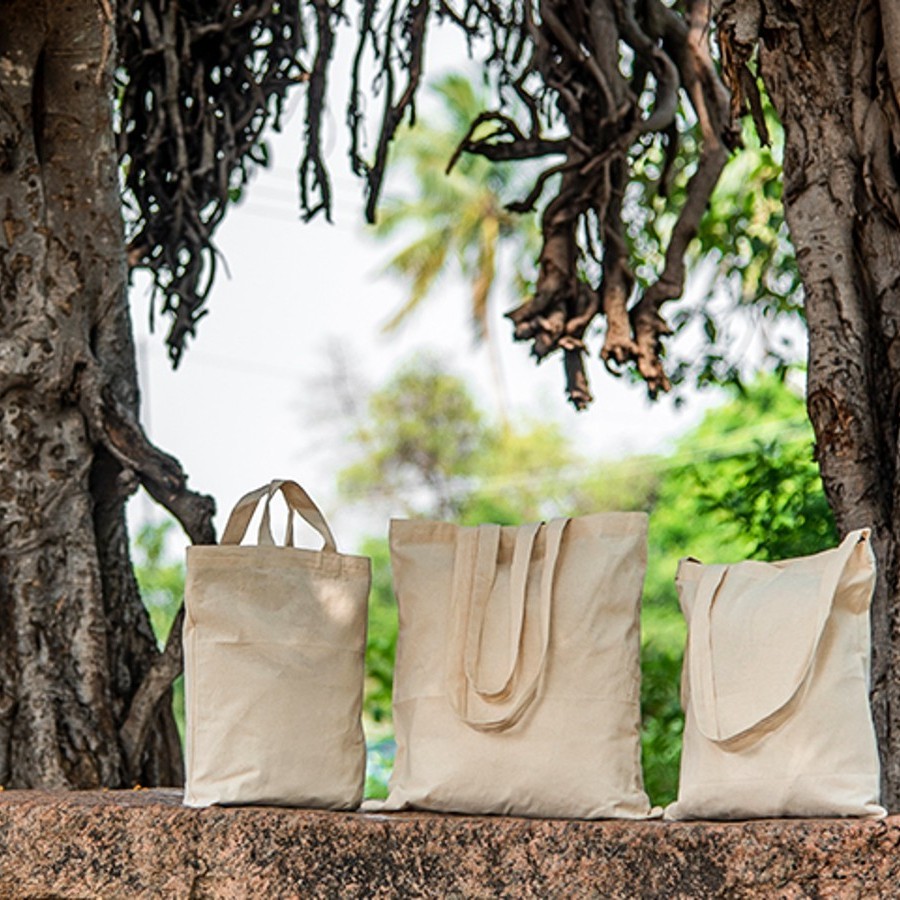
Madurai, Tamil Nadu, India
YellowBag makes cloth bags from local cotton, jute, and other environmentally responsible materials, reduces single-use plastic consumption, and creates livelihood opportunities for women from urban slums. They specialize in customized cloth bags for ethical fashion brands, retailers, restaurants, hotel laundry services, conferences, events, and wedding thamboolam. YellowBag started with a tailoring workspace in the Madhichiyam area of Madurai, and they are now working to develop a Women Tailoring Network across other marginalized communities. When women have the ability to generate a steady income, it improves their self esteem, their family’s health, and educational outcomes for their children. Young people in these communities have higher dropout rates and are more vulnerable to early marriage, drug use, and crime. YellowBag also initiated an educational program called Green Slate to provide academic support, improve life skills and leadership skills, and help first-generation learners finish their higher studies. YellowBag is registered as a not-for-profit social enterprise.
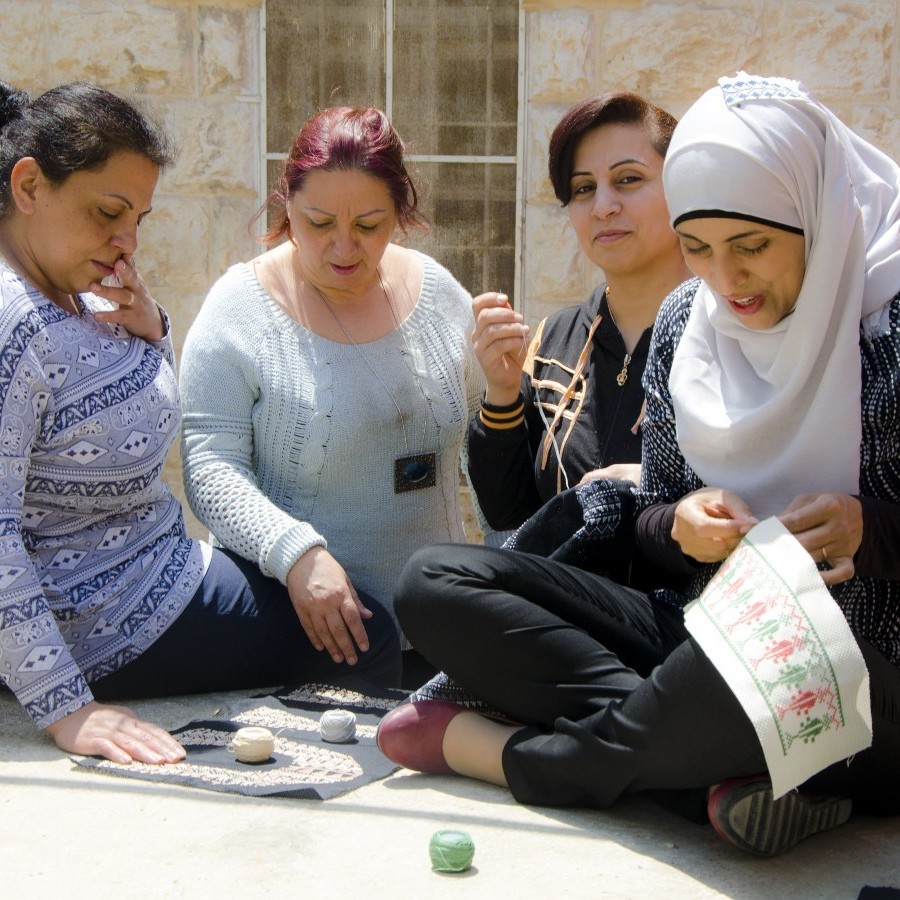
Zababdeh, West Bank, Palestine
Darzah was started to celebrate and preserve Palestinian heritage and empower low-income and refugee women in the West Bank. They specialize in fair trade shoes, bags, accessories, and housewares featuring traditional tatreez embroidery. All products are handmade in Palestine. The leather in their shoes and bags is locally sourced from family-owned enterprises in the Al-Khalil region that follow international standards for health, safety, and water treatment. Each piece is hand embroidered with tatreez motifs by women artisans near Zababdeh. Darzah provides fair wages, training programs, a supportive community, and the option to work from home. They also maintain an online Tatreez Archive with a crowdsourced collection of tatreez embroidery designs. Darzah is a project of Child’s Cup Full, a 501(c)3 not-for-profit social enterprise. They are part of The Artesan Gateway and Fair Trade Federation.

Dakar, Senegal
Yolélé was started to create economic opportunity for West African smallholder farming communities, support their biodiverse, regenerative, and climate-resilient farming systems, and share Africa’s ingredients and flavors with the world. Most development funding in the drought and famine-prone Sahel region goes towards chemical-intensive, monocultures of foreign crop varieties. Yolélé is creating a market for traditional crops that are well-suited to the region’s soil and hot arid climate and are grown in resilient, biodiverse local farming systems. Their initial products in the United States are fonio, a nutrient-rich, easy-to-cook ancient African grain, fonio chips, fonio pilafs, and fonio flour. By investing in local smallholder farmers, training them in conservation farming techniques, and developing a fair-trade supply chain, Yolélé is contributing to economic resilience, food sovereignty, healthier soil, and stronger communities. A portion of sales are dedicated to quality of life improvements in their sourcing communities. Yolélé is part of Nourishing Africa.
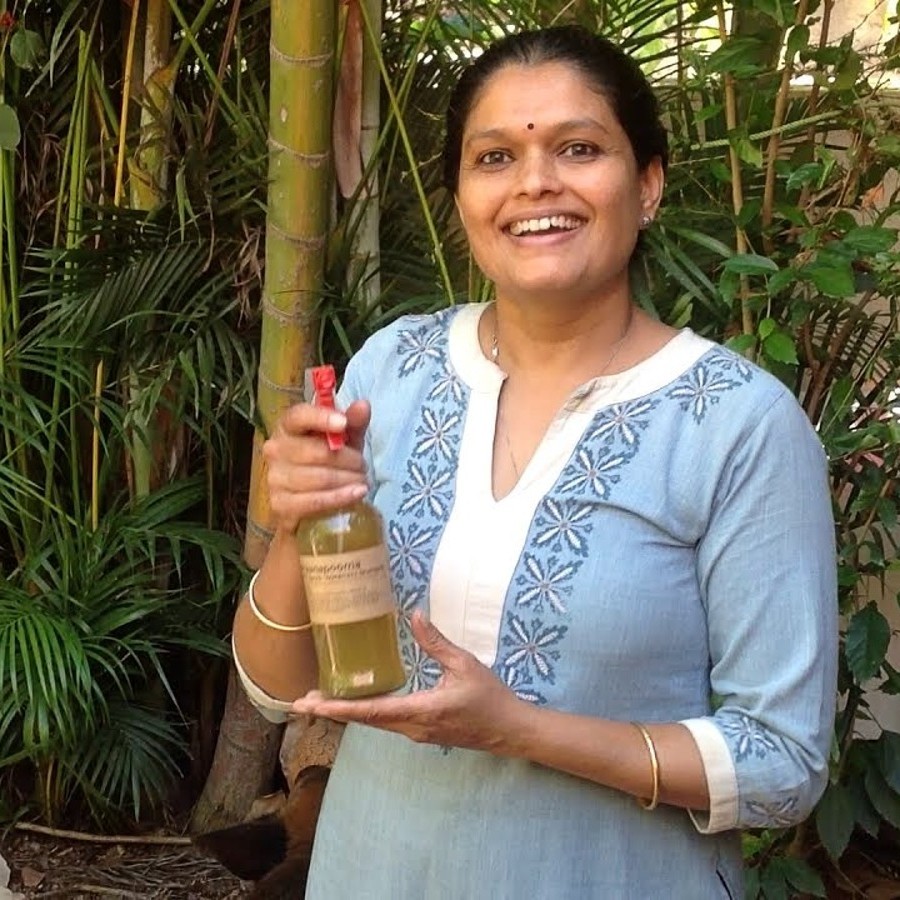
Bengaluru, Karnataka, India
PraanaPoorna Collective aims to make environmentally and socially responsible personal care, pet care, and cleaning products affordable and accessible. They focus on replacing harmful synthetic chemicals with bio-enzymes and locally sourced natural ingredients like citrus peels, soapnuts, shikakai, and pure essential oils. Products include shampoo, handwash, oils, balms, butters, mosquito repellent, produce wash, dishwash powder, detergent, surface disinfectant, degreaser, toilet cleaner, garden and compost spray, and pet supplies. PraanaPoorna has a distributed co-production model to support local livelihoods and minimize transport. They collect, clean, and reuse packaging materials, sell on a bulk basis through zero waste partners, and offer free training programs and workshops to support home production and self reliance.

Colombo, Sri Lanka
ALEAF creates ethical and sustainable bags, wallets, and accessories and uses fashion as a tool to uplift rural communities and preserve our planet. They specialize in environmentally responsible materials including GOTS certified organic cotton, Desserto, a vegan leather alternative made from nopal cactus, Piñatex, a vegan leather alternative made from waste pineapple leaves, and Malai, a vegan leather alternative made from bacterial cellulose grown on waste coconut water. ALEAF minimizes waste by focusing on timeless designs, producing small quantities, saving scrap materials for reuse, and taking end-of-life responsibility. Customers can follow their guides to compost, recycle, and reuse product materials, or they can return them to ALEAF for recycling and receive a 10 percent discount on their next purchase. Products are packed in GOTS organic cotton dust bags and compostable cardboard boxes. Fifty percent of profits are donated to organizations that uplift rural communities through housing, education, healthcare, and employment support. ALEAF has PETA Approved Vegan certification.
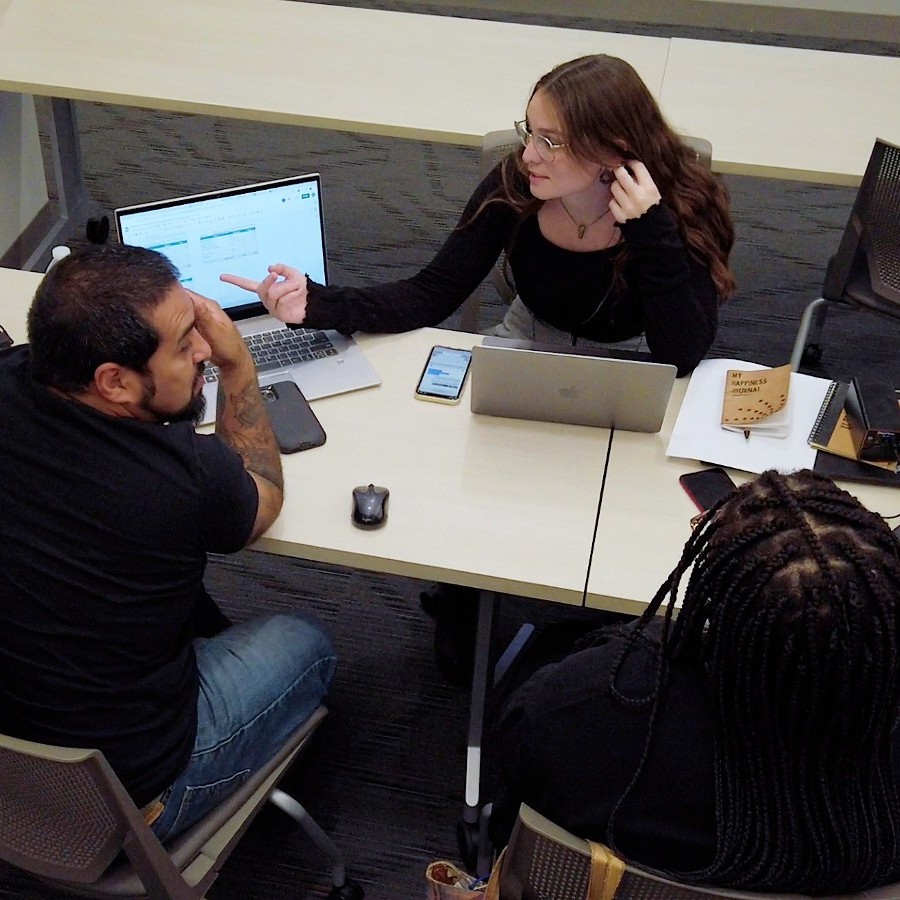
Thrive Consultancy is working to create a more equitable and regenerative economy in Arizona by helping small and medium enterprises become economically viable while empowering people and protecting the planet. They offer personalized workshops on sustainable business topics like business model design, product development, prototyping, pricing, branding, sustainable sourcing, energy, water, waste, and distribution. They also provide consulting services to businesses that are developing a cooperative structure, transitioning to a sustainable business model, or pursuing B Corp certification. Thrive Consultancy partners with local government and other institutions to provide training programs and events that are free for participants. For example, they work with the City of Phoenix and the Sustainable Food Economy Lab at Arizona State University to deliver a 10-week Sustainable Cooperative Food Business Training Program. For non-sponsored services, they offer sliding scale pricing for clients who identify as low-income. Thrive Consultancy is registered as a benefit corporation and is part of Local First Arizona.
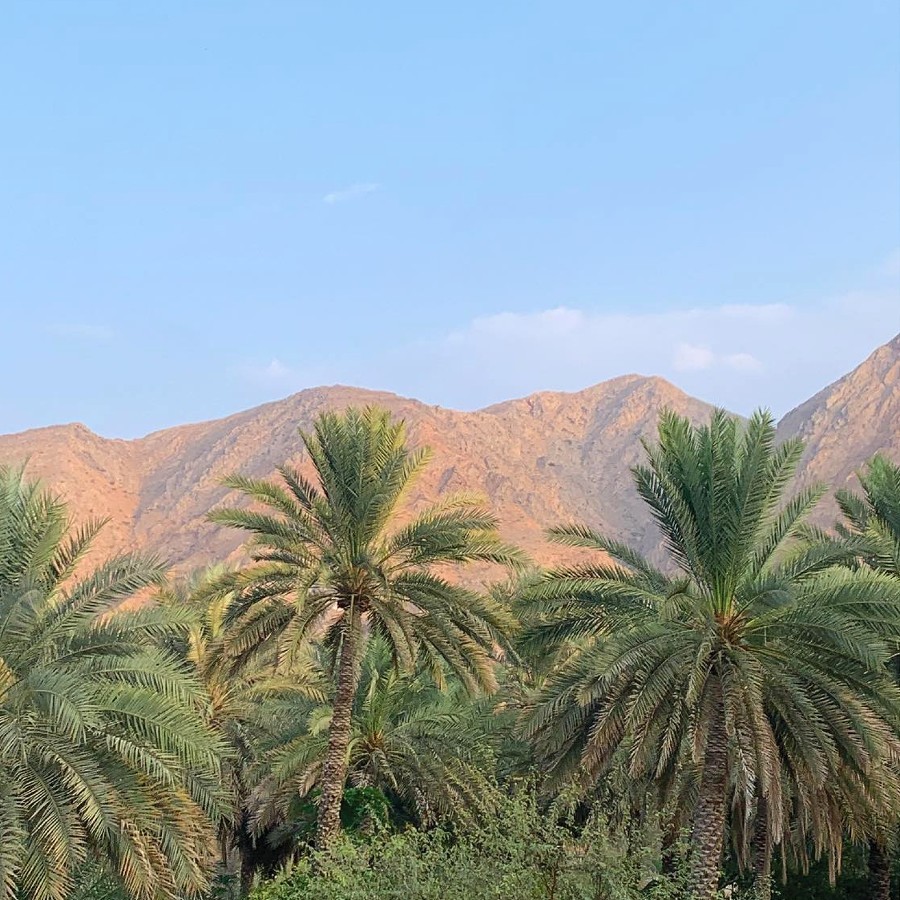
Muscat, Oman
Nawa reduces agricultural waste by unlocking the power of date stones. They offer craft roasted date stones as a caffeine-free coffee alternative, cold pressed date stone oil as a potent skin serum, and ground date stones as a fiber supplement, smoothie add-in, and gluten free flour substitute. The stones are sourced from date palm wadis in Oman and are soaked, hand washed, sun dried, roasted, and ground in small batches. The flavor and aroma is similar to coffee without the associated bitterness, acidity, restlessness, insomnia, and anxiety. Nawa uses their platform to celebrate natural resources and reimagine waste.
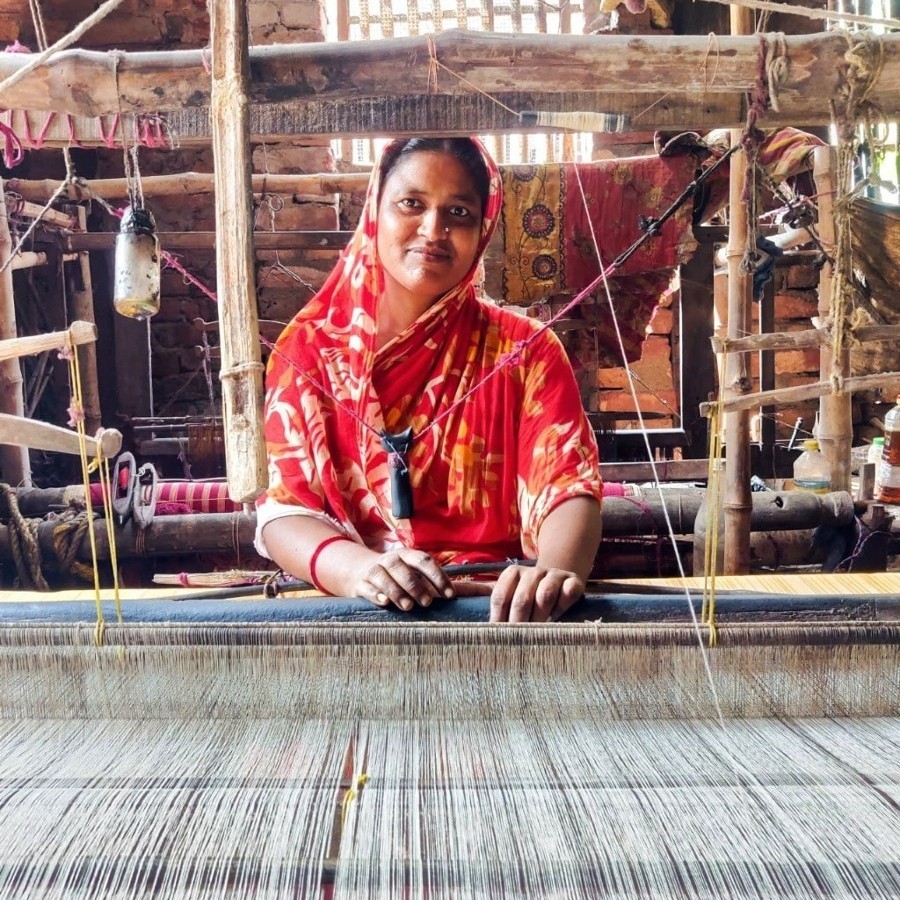
Sarba Shanti Ayog provides business development and social development services based on fair trade principles for Sasha producer groups and other grassroots craft enterprises. They assist with capacity building, market development, action research, information systems, social service access, micro enterprise financing, compliance and certification, and networking and advocacy. Sarba Shanti Ayog has been working with marginalized producers in eastern India since 1978 and has helped develop more than 50 fair trade enterprises that are part of the Sasha network. Members of these groups have improved skills, regular work, stable incomes, safe working conditions, savings, insurance, access to health and education, and a commitment to environmental responsibility. Sarba Shanti Ayog now shares their services and technical expertise with fair trade craft producing and marketing organizations across all regions of India. They also implement community and enterprise development projects and mobilize investment in the fair trade and artisan sectors. Sarba Shanti Ayog is registered as a not-for-profit society.
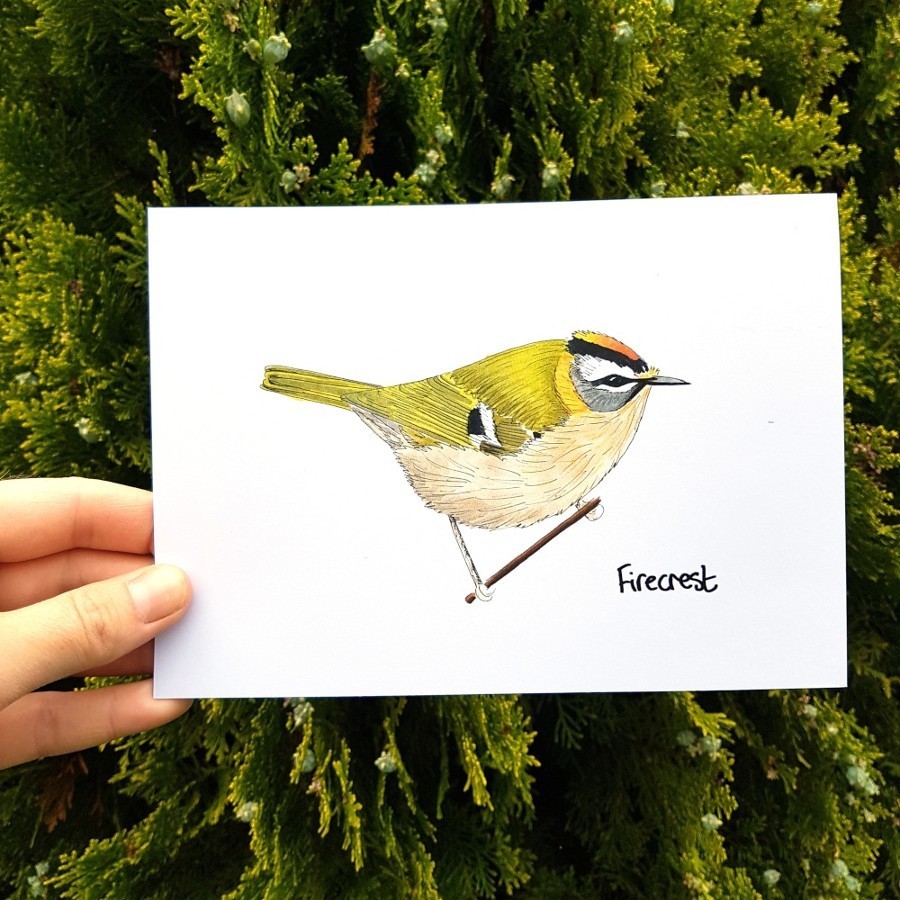
Checkendon, England, United Kingdom
Gift Wild celebrates and supports nature by offering sustainably sourced gifts that fund conservation initiatives. They specialize in cards, notebooks, cushions, and bags with prints of original artwork depicting birds, insects, and other wildlife. Paper products are made from recycled, uncoated paper and printed with vegetable-based inks. Textile products are made from Fairtrade, Global Organic Textile Standard (GOTS), and Soil Association certified cotton. All orders are packaged in environmentally responsible, plastic-free packaging. Gift Wild donates 10 percent of all sales to conservation charities including the Royal Society for the Protection of Birds (RSPB), Wildfowl and Wetlands Trust (WWT), Butterfly Conservation, Marine Conservation Society, and Buglife.
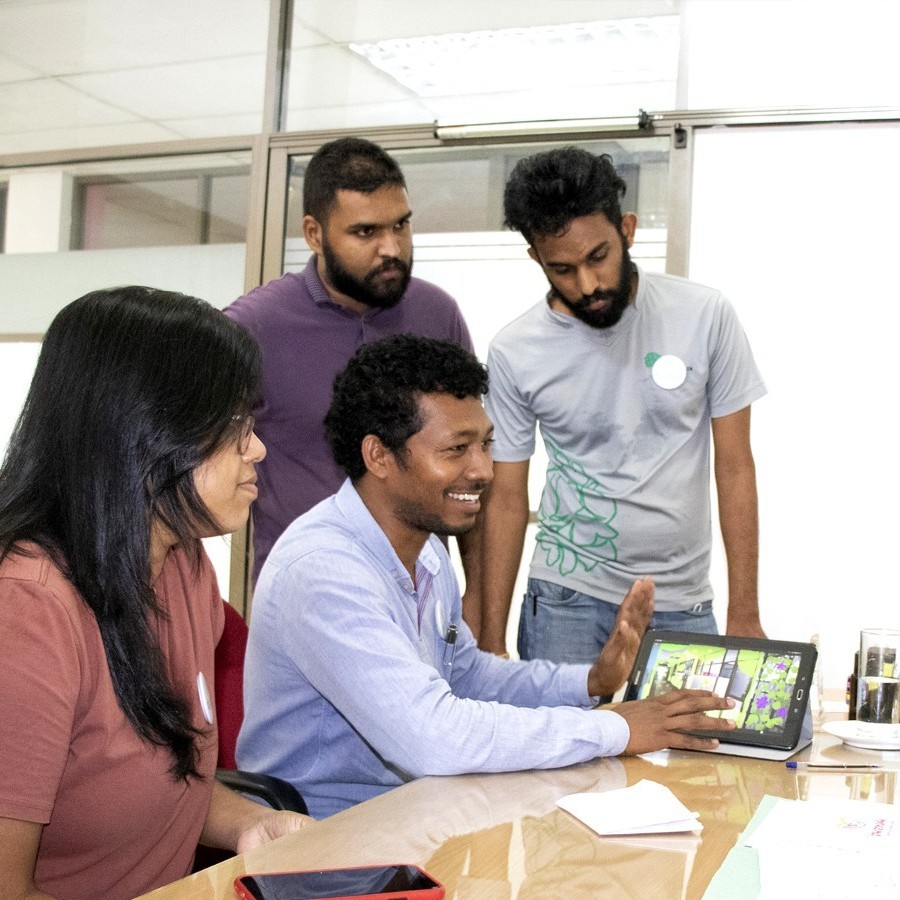
Colombo, Sri Lanka
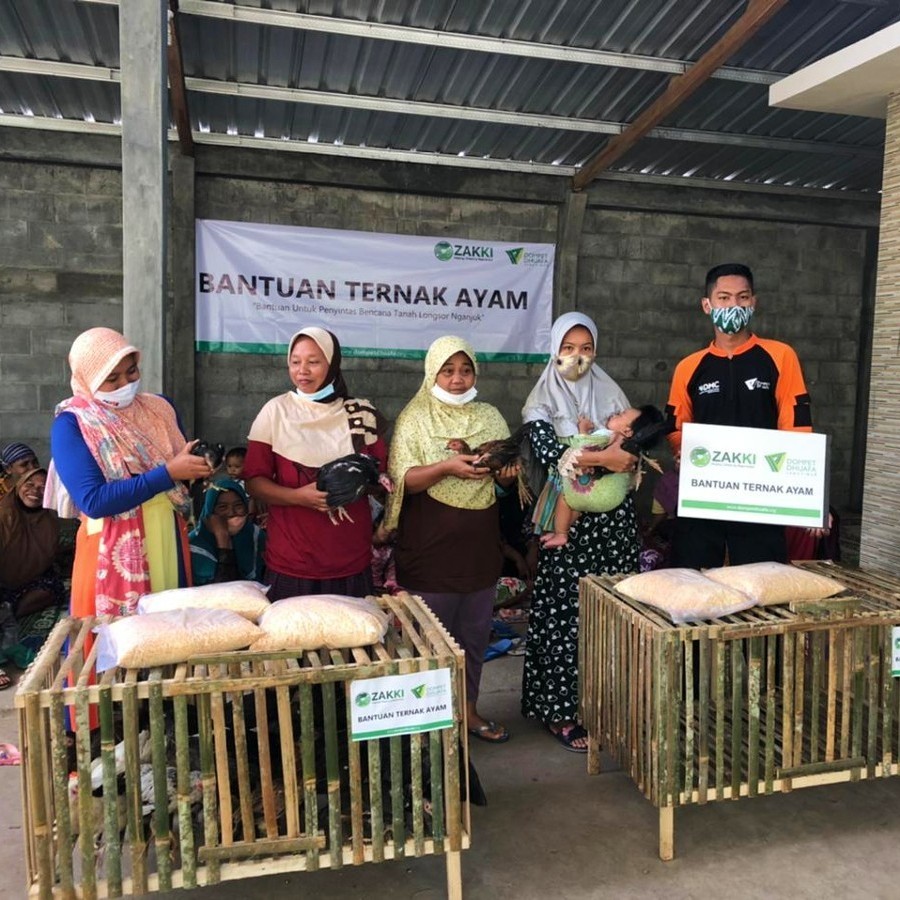
Semarang, Indonesia
ZAKKI, which is short for Zakat Kasih, aims to strengthen the Indonesian economy through socioeconomic empowerment of marginalized groups. Their online platform facilitates zakat almsgiving, donations, and voluntary action to support elderly people and people with disabilities who have microenterprises and are still working in the informal sector. They mobilize resources, assist with market access, and form inclusive local community groups to coordinate nutritious meals, simple physical activity, and basic health checks. ZAKKI also distributes aid after earthquakes, landslides, and other natural disasters to help people earn a living and rebuild their lives. The platform was developed by Yayasan Integrity Syariah, which is registered as a not-for-profit organization in Indonesia.
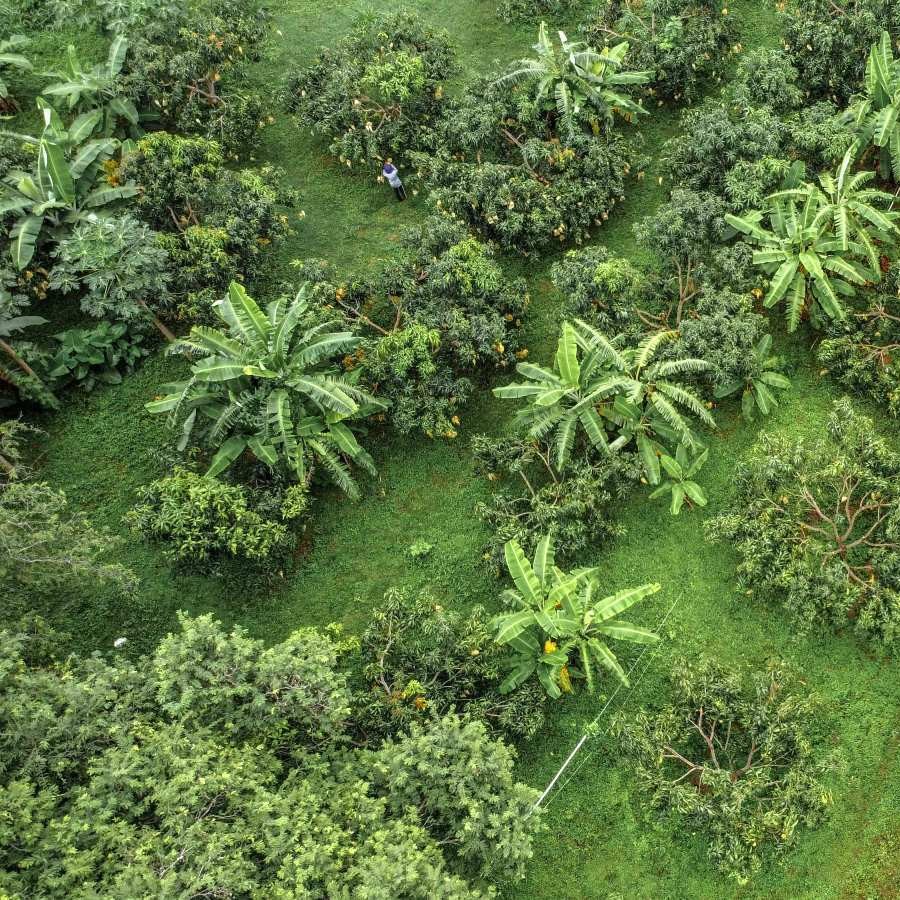
Dambulla, Sri Lanka
Moare Organics promotes healthy, environmentally responsible living by cultivating, sourcing, and supplying organic fresh produce. They grow coconut, fruit, vegetables, greens, and herbs on their 33.5 acre Pahalawewa Farm near Dambulla and sell it online and through supermarket channels. In order to expand their product range and ensure a more consistent supply, they also source products from other farms and small-scale producer groups. All suppliers must have an organic certificate from a recognized organic participatory guarantee system (PGS) or an accredited certifier. Moare Organics aims to expand sustainable agriculture practices by helping low-income farmers access technical support, seeds, market opportunities, and investment. They are developing a platform called Crowdfarmy to connect sustainable farmers and impact investors. The Pahalawewa Farm is under Demeter biodynamic certification.

Charlotte, North Carolina, United States
Social Change Innovators aims to create synergy between faculty teaching and researching in the field of social innovation. Their interactive platform makes it easier for social entrepreneurship educators to share resources and best practices and collaborate to build long term impact. Topics include design thinking, theories of change, social business models, legal structures, fundraising, scaling social impact, and systems thinking for social change. Social Change Innovators is part of Catalyst 2030.
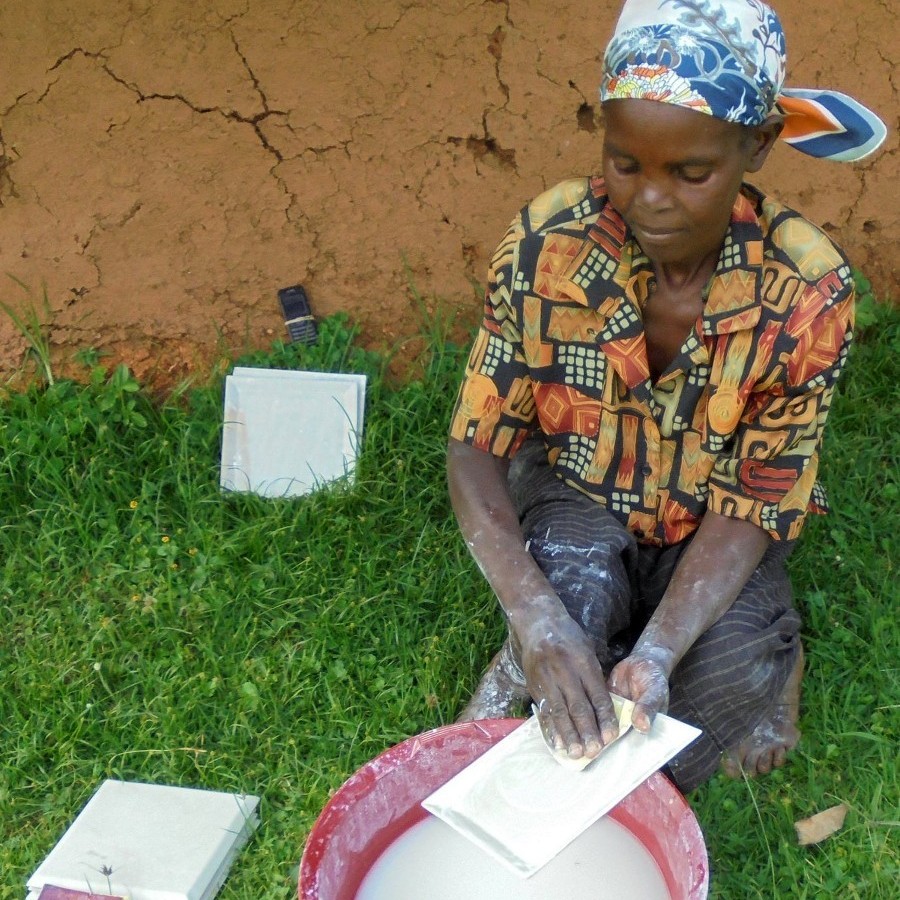
Kisumu, Kenya
Hands of Hope Artisan Carvers is a self help group in western Kenya that uses locally available resources to empower artisans, create sustainable livelihoods, and address community challenges. They specialize in hand carved Kisii soapstone artwork and housewares. Group members also create greeting cards from banana fiber and jewelry from Maasai beads and recycled paper. Hands of Hope provides training, develops new designs, coordinates materials and tools, monitors quality, and assists with market access. They also help members access primary health care, educational opportunities, and small loans. Revenue is used to support vulnerable women and children in the local community.
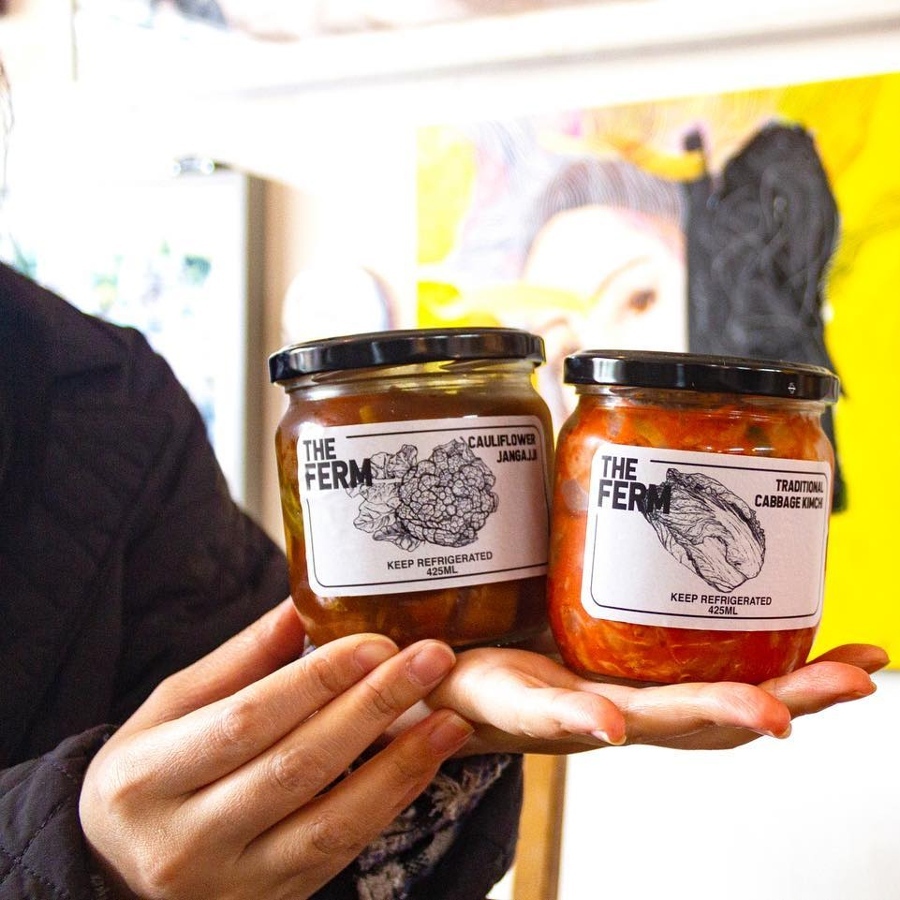
London, England, United Kingdom
The Ferm was started to tackle food waste, promote vegan probiotic food, and contribute to a circular economy. They partner with trusted farmers, manufacturers, and distributors to ensure all parts of the harvest are used. Potential food waste is diverted and transformed into healthy and affordable Korean pickles like Napa cabbage kimchi, cauliflower jangajji, and beetroot stem kimchi. These fermented foods not only reduce waste, they also contribute to a healthy gut micobiome. The Ferm offers products through London farmers markets, local retailers, and online and organizes workshops on food preservation and vegan Korean cuisine.

Detroit, Michigan, United States
Origami Legal provides legal services to the businesses, social enterprises, nonprofits, and creatives that are making the world a better, more interesting place. They specialize in business and nonprofit setup, branding, trademarks, copyright, and contracts. Their Zen Legal Subscription serves as an agile, outsourced alternative to employing in-house counsel. For a monthly fee, businesses, organizations, and creative practices can schedule calls and video conferences, submit documents for review, and receive a discount on additional services. Origami Legal offers free initial consultations, maintains below-market rates, prioritizes individuals and businesses from historically disadvantaged groups, and offers affinity discounts for Green Garage members, Good Market approved enterprises, and B Corp certified businesses. They donate 10 percent of profits to charities working on causes selected by clients.
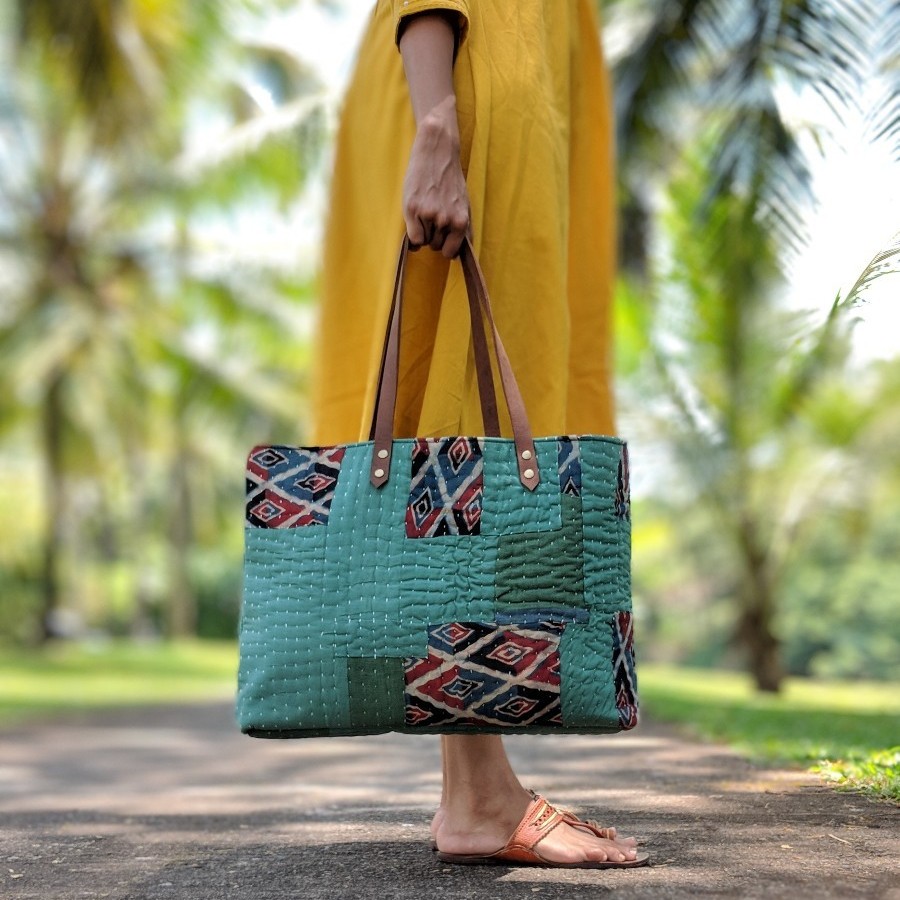
Chandigarh, India
The Initiative provides sustainable livelihoods to low-income craftspeople through functional, handcrafted products. They started in Maharashtra with Godhadhi, traditional quilts made by hand stitching multiple layers of old saris and cloth together. Participating women source fabric scraps from conscious clothing brands and customers and use them to create unique bags, accessories, and housewares. Over the years, The Initiative has expanded to provide consulting services to craft organizations in other regions and product categories. They specialize in design research, product development, upskilling workshops, and market linkages for handmade products. The Initiative donates to Live to Give, Mesh Foundation, and educational causes.
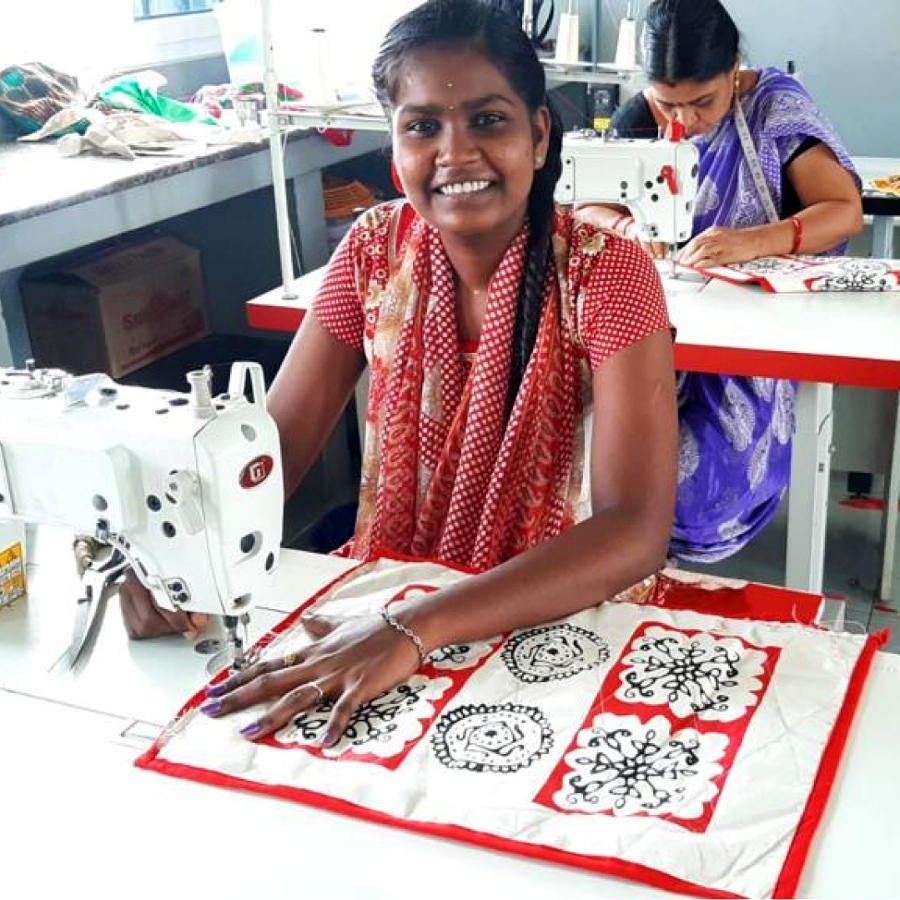
Mytri Designs is an online retailer that specializes in ethically sourced and sustainably made housewares and wellness products. They work with traditional artisans and community-based social enterprises to create unique designs from environmentally responsible materials and ensure fair wages and safe working conditions. Their site offers handmade furniture, rugs, cushion covers, baskets, frames, Aranmula Kannadi mirrors, ceramics, tableware, and more. Under MytriWellness, they provide natural soaps, creams, soy wax candles, essential oils, and gift boxes. Profits are reinvested in partner social enterprises and artisan groups.
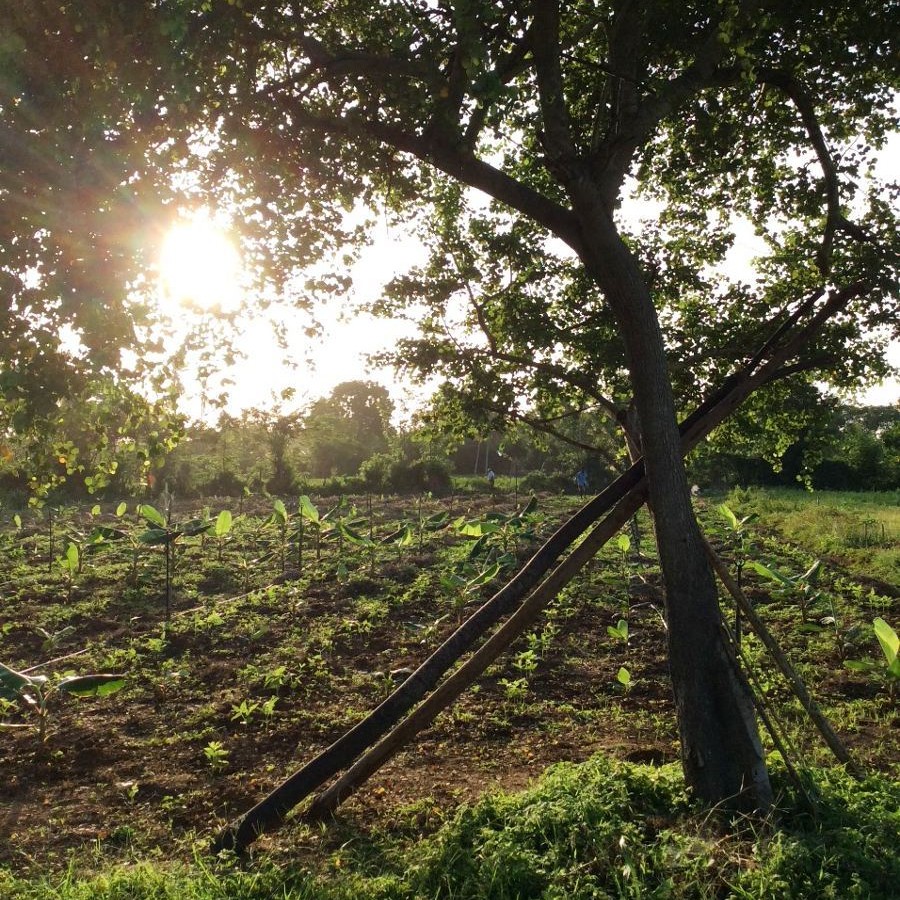
Walgameliya, Sri Lanka
Edya started Eranduyaaya Plantation, a farm in southern Sri Lanka that is committed to regenerative agriculture. They improve the soil by adding compost, minerals, cow dung, paddy husk, and liquid fertilizers made from natural, local ingredients. Synthetic pesticides and weedicides have not been applied on the land for nearly 10 years. Edya uses insect repellent plants as sprays and intercrops during cultivation and stores them with crops after harvest. Weeding is done manually. Crops include coconut, mango, soursop, guava, wood apple, banana, passionfruit, turmeric, maize, cassava, kurakkan, green gram, groundnut, and vegetables. Edya provides employment opportunities for low-income families in the surrounding area, educates workers and customers on organic practices, and shares surplus harvest.
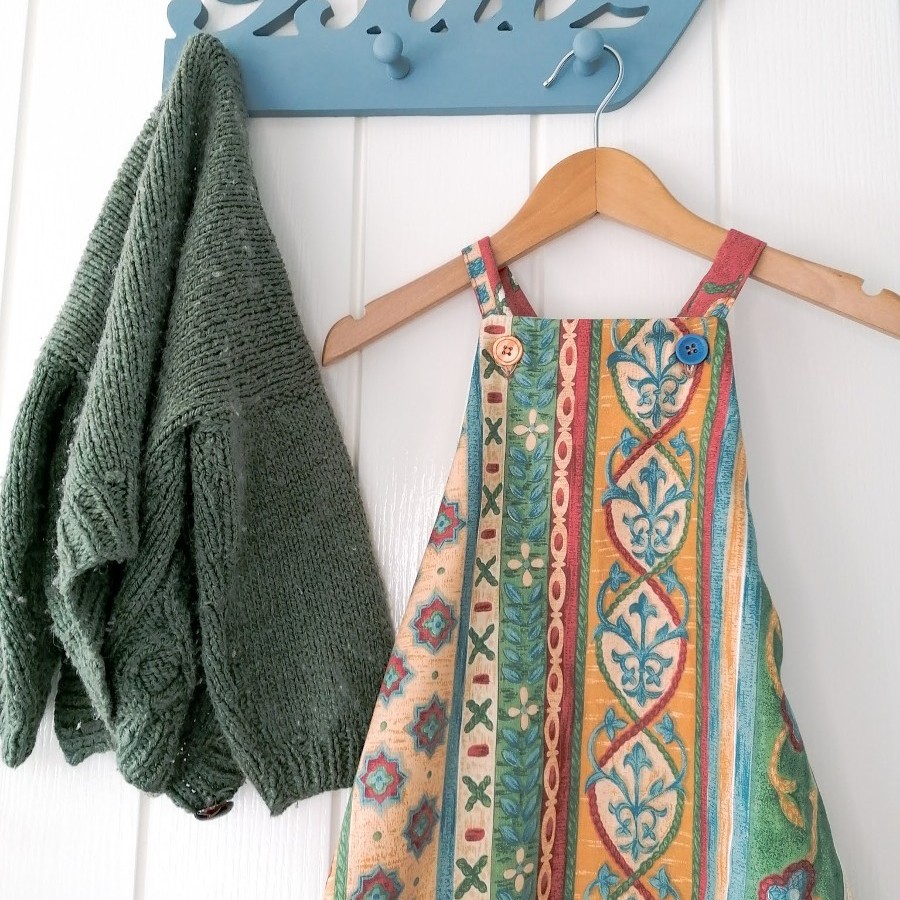
Bourton-on-the-Water, England, United Kingdom
Buttons for Beans contributes to a circular economy by creating upcycled children’s clothing and accessories from discarded materials that would have otherwise gone to landfill. They collect adult clothing, curtains, tablecloths, pillow cases, duvets, sleeping bags, fabric swatches, charity shop rag bags, and other fabrics and transform them into unique rompers, dresses, dungarees, tops, shorts, trousers, jackets, memory quilts, and more. Products can be customized and made to order. When the clothing is outgrown, customers can return it for a discount on their next purchase. Buttons for Beans maintains a swap shop where these pre-loved pieces can be purchased at a fraction of the original cost.
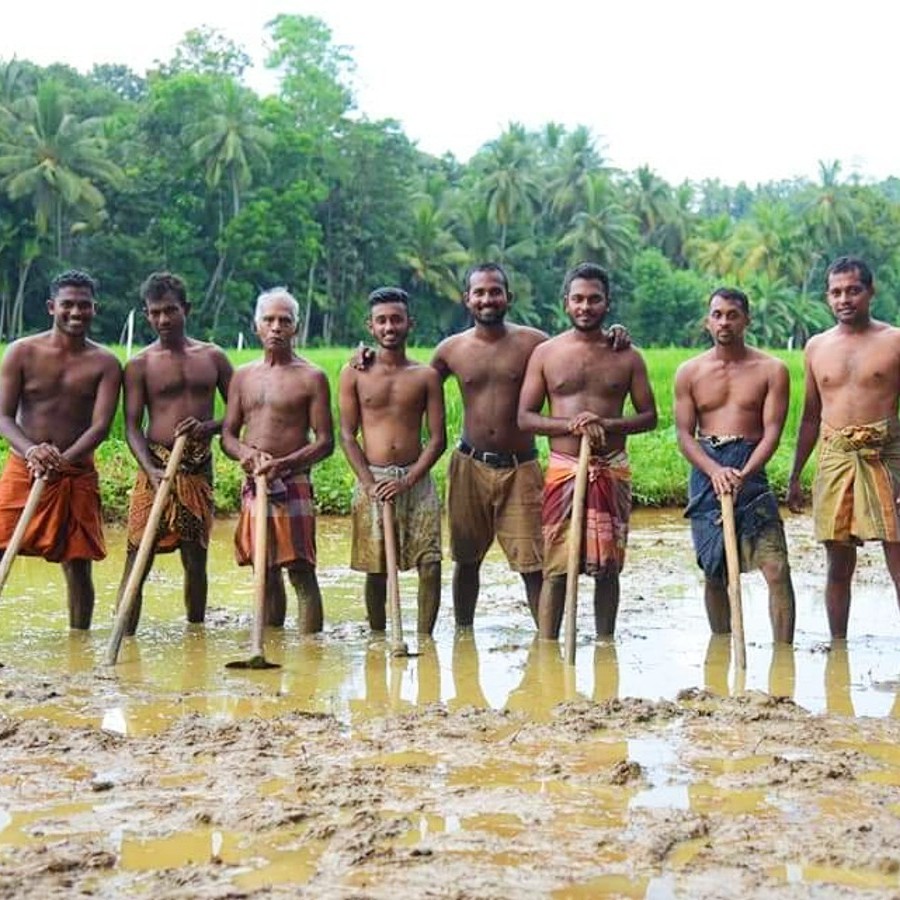
Dedigama, Sri Lanka
Nalaka Senadeera Movement is mobilizing Sri Lankan youth to cultivate abandoned land, promote native plants, preserve traditional seeds, and develop resilient local food systems. They travel to all parts of the country and maintain active social media channels that promote sustainable farming practices and celebrate positive action. They sell native plants at nominal prices to cover costs. All income is reinvested towards their mission.

Bengaluru, Karnataka, India
Social Innovation Studio works with non-profits, social enterprises, and purpose driven organizations to innovate human-centered solutions that enable, enhance or scale impact. They focus on design research, intervention design, and communication design. Specific services include user research, market research and designing programs, workshops, experiences, services, communication strategies, social media content, websites, and applications. Social Innovation Studio collaborates with a wide range of organizations and networks to design a better world.
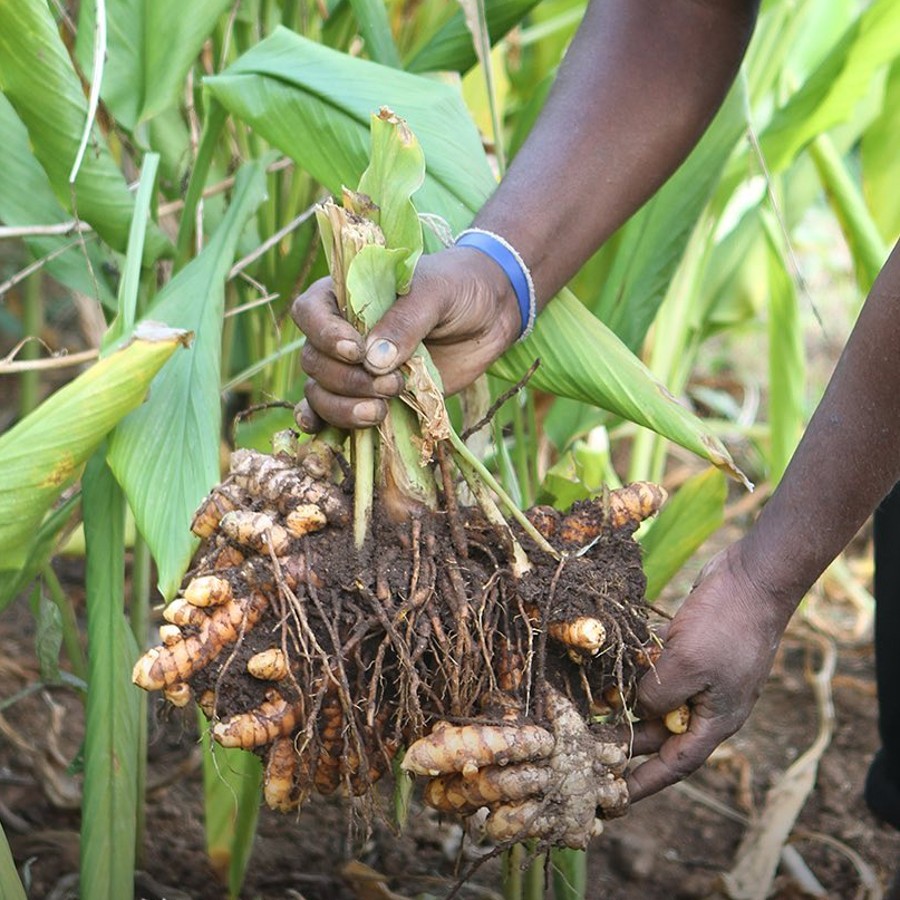
Haragama, Sri Lanka
Gaha-Kola aims to make organic fruits, vegetables, and spices more accessible and affordable. They have seven acres of organic land and forest at Maligathenna Estate in Kandy, and they working with low income families in the surrounding area to help them transition to organic practices. Gaha-Kola has organic spices like ginger, turmeric, cinnamon, and pepper, organic fruits like papaya, guava, lime, banana, passion fruit, tamarind, lawulu, and seasonal upcountry vegetables. They maintain an onsite nursery, practice mixed cropping, use natural inputs like seaweed, fish waste, and neem, have a profit sharing incentive scheme for workers, and contribute to local community service projects. Gaha-Kola is verified under a local organic participatory guarantee system (PGS).

Nugegoda, Sri Lanka
Clara Minnelli produces ethical clothing and housewares that uplift women artisans, support rural livelihoods, and celebrate Sri Lankan handloom fabrics. Their colors and designs are inspired by nature and are carefully produced to minimize waste and enable long-term wear. Fabric scraps are used to make accessories and decorative bolsters.
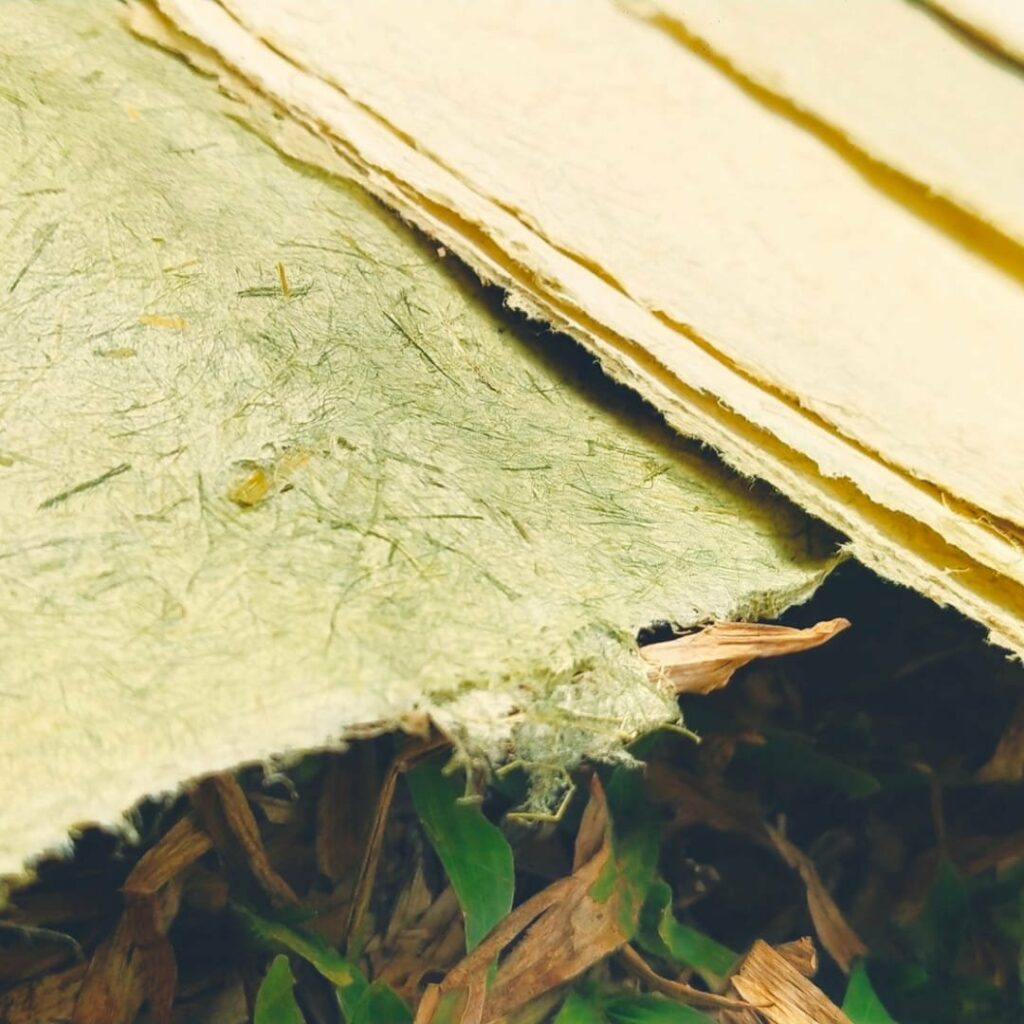
Kolonnawa, Sri Lanka
Swabha Thantu aims to strengthen the rural economy in Sri Lanka by promoting natural, handcrafted products. They specialize in handmade paper sheets, boxes, bags, and packaging made from invasive plants and agricultural waste materials. Swabha Thantu partners with women’s societies in low-income rural areas and assists with training, equipment, and market opportunities. Custom design options are available.
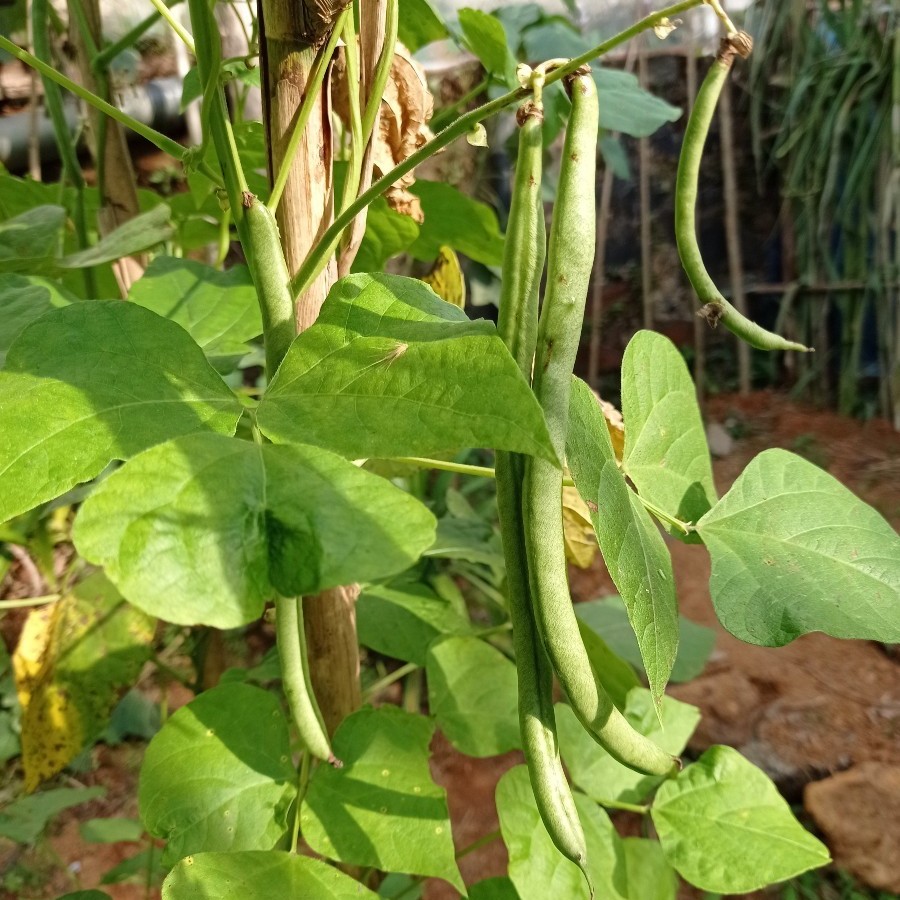
Kotagala, Sri Lanka
ECO-g demonstrates organic practices on their farm in the central highlands of Sri Lanka to promote food security, self sufficiency, public health, and resilient rural livelihoods. The region is known for its heavy use of imported synthetic fertilizers and agrichemicals, erosion, loss of soil fertility, and poor standards of living. ECO-g follows a Sustainable Land Management (SLM) approach with crop rotation, intercropping with natural pest repellents, mixed cropping, mulching, cover crops, and rainwater harvesting. They produce their own inputs from on-farm and locally available materials including compost, dried manure, vermicompost, green manure from gliricidia and wild sunflower, fermented cow urine, compost tea, vermiwash, banana peel liquid fertilizers, neem oil, and tobacco decoctions. ECO-g provides consulting services, workshops, demonstrations, and presentations for local government, schools, and low income groups and encourages people to grow their own food even if they only have small spaces. They share their harvest with workers and friends and donate to local community groups and festivals.
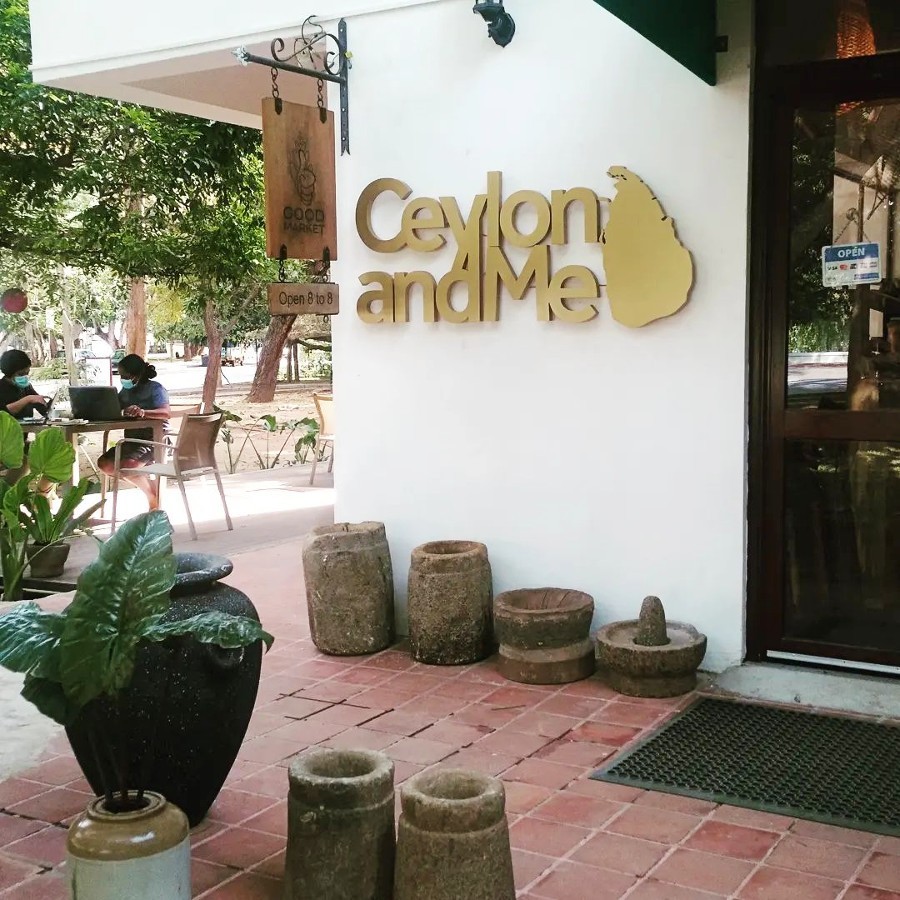
Colombo, Sri Lanka
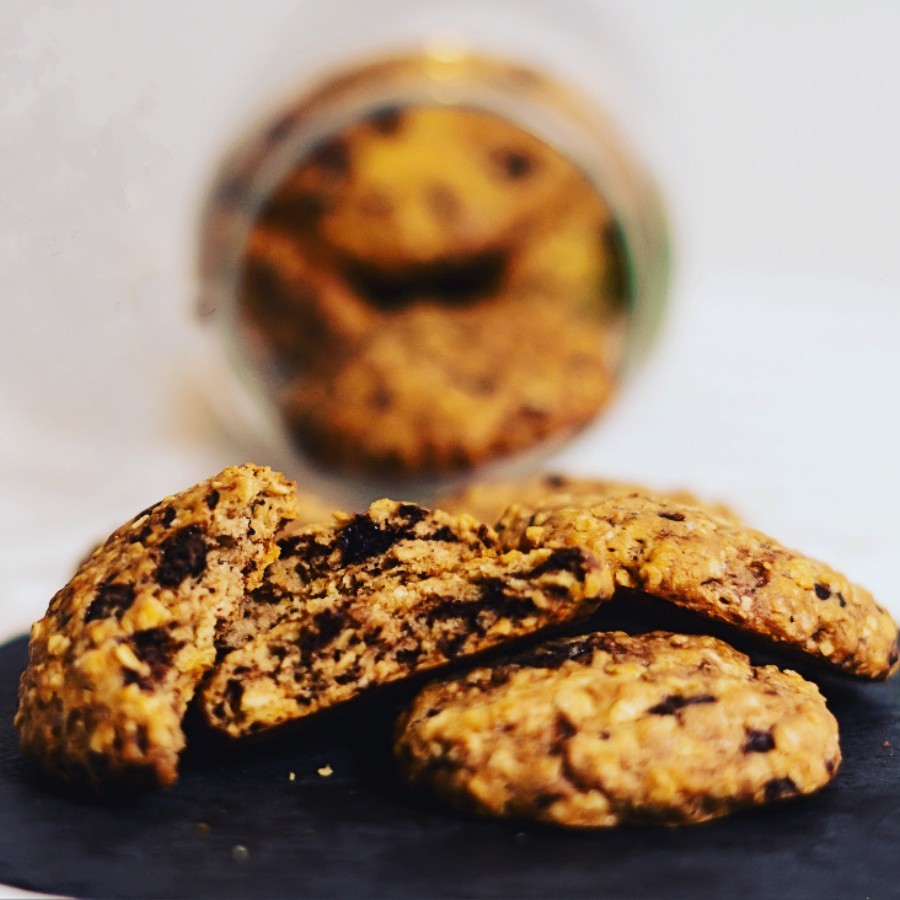
Sri Jayawardenepura Kotte, Sri Lanka
Lactoboost offers lactation cookies as a healthy snack to support milk production in breastfeeding mothers. The cookies contain oats, flax seeds, and nutritional yeast, three natural galactagogues that help increase prolactin hormone levels. Lactoboost uses their platform to share tips and facts related to newborns and early parenthood in Sri Lanka. They also manage a group that provides support for new mothers. Lactoboost provides free cookies to women in need.
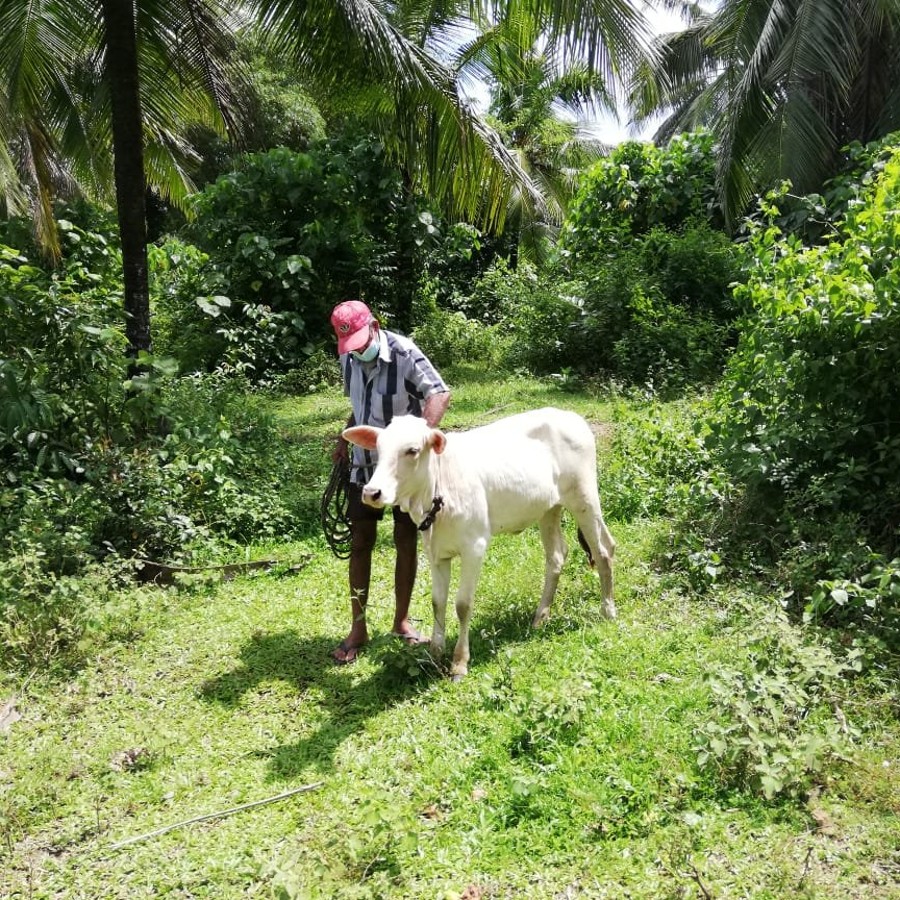
Watareka, Sri Lanka
Rocy Farm raises cows according to free range standards and sells milk and cow dung in their local community. The cows spend the day on adjacent pasture land with adequate natural vegetation and the night in a protected home garden. Rocy Farm works with Sri Lanka Human Development Foundation to promote natural farming techniques and reduce carbon emissions. They are verified free range under a local participatory guarantee system (PGS).
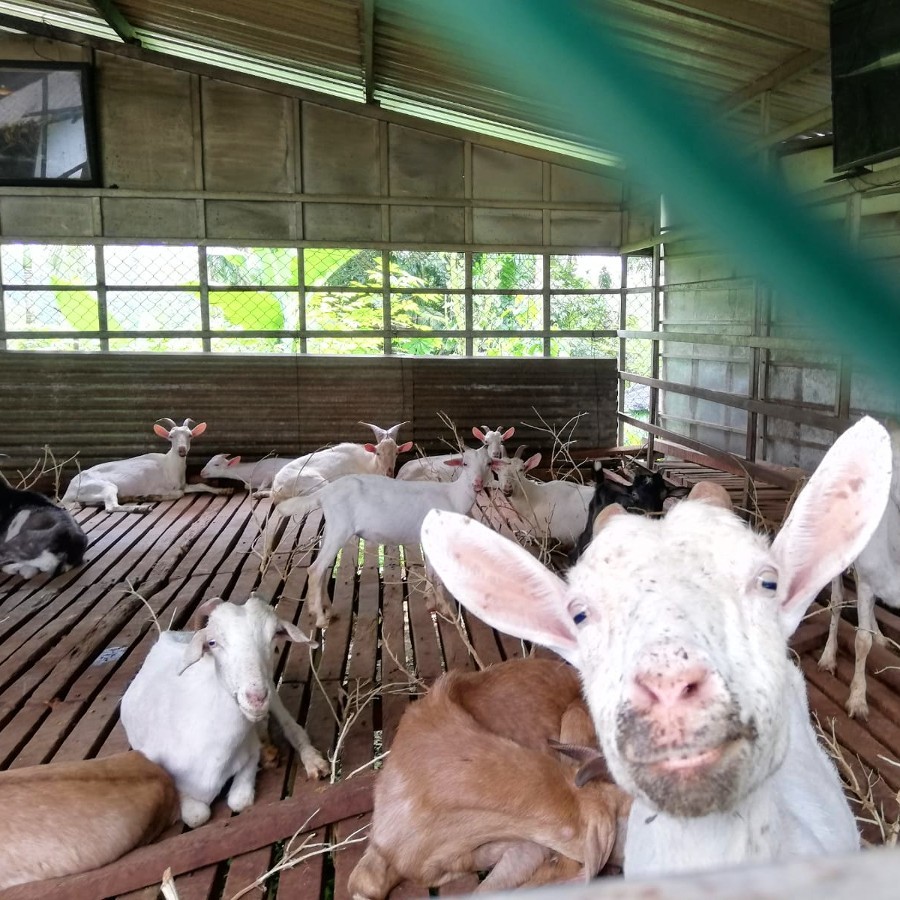
Watareka, Sri Lanka
Maheema Farm raises goats according to free range standards and sells natural goat milk and yogurt in their local community. The animals have enough outdoor pasture and indoor housing for natural behavior. They are naturally bred on the farm, and kids are not separated from their mothers. Maheema Farm works with Sri Lanka Human Development Foundation to promote natural farming techniques and reduce carbon emissions. They are verified free range under a local participatory guarantee system (PGS).
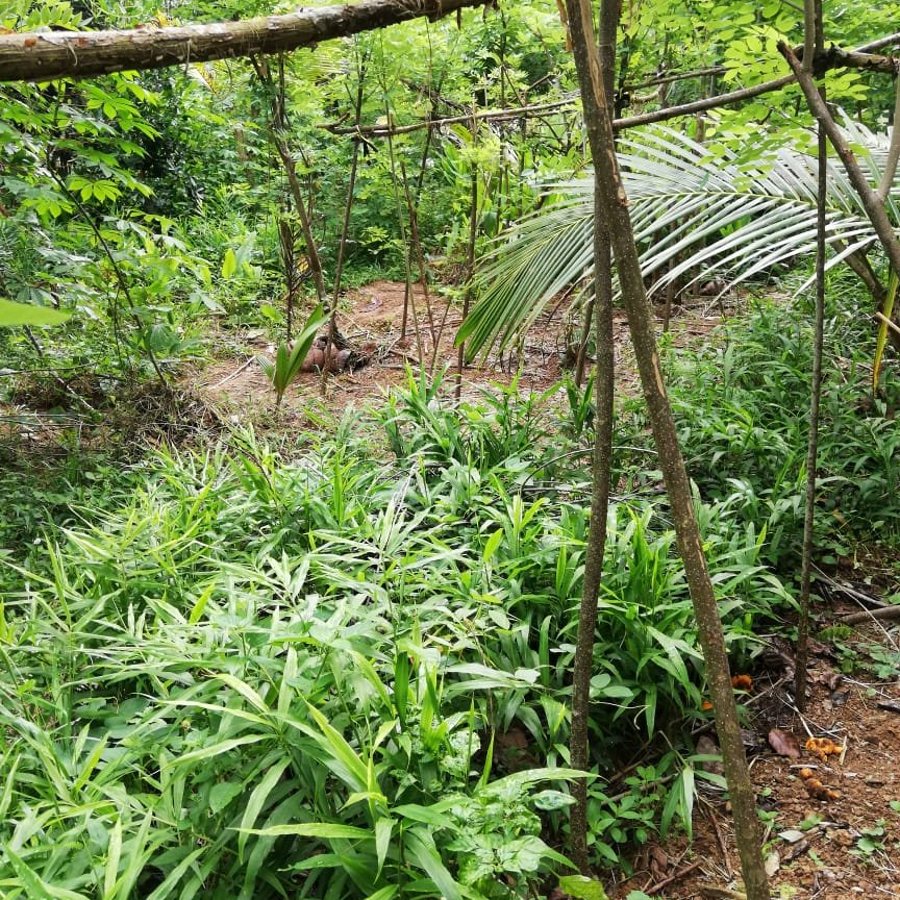
Watareka, Sri Lanka
Watareka Farmers is a group of small-scale farmers that practice organic agricultural methods and cultivate toxin-free fruits and vegetables for their local community. They maintain a diversity of crops, build soil health, and conserve water through mulching and other techniques. Group members maintain plant nurseries and produce compost, vermicompost, liquid fertilizers, and pest repellents from natural, locally available materials. Watareka Farmers works with Sri Lanka Human Development Foundation to promote natural farming techniques, reduce carbon emissions, and protect local biodiversity and indigenous seeds. They are verified organic under a local participatory guarantee system (PGS).
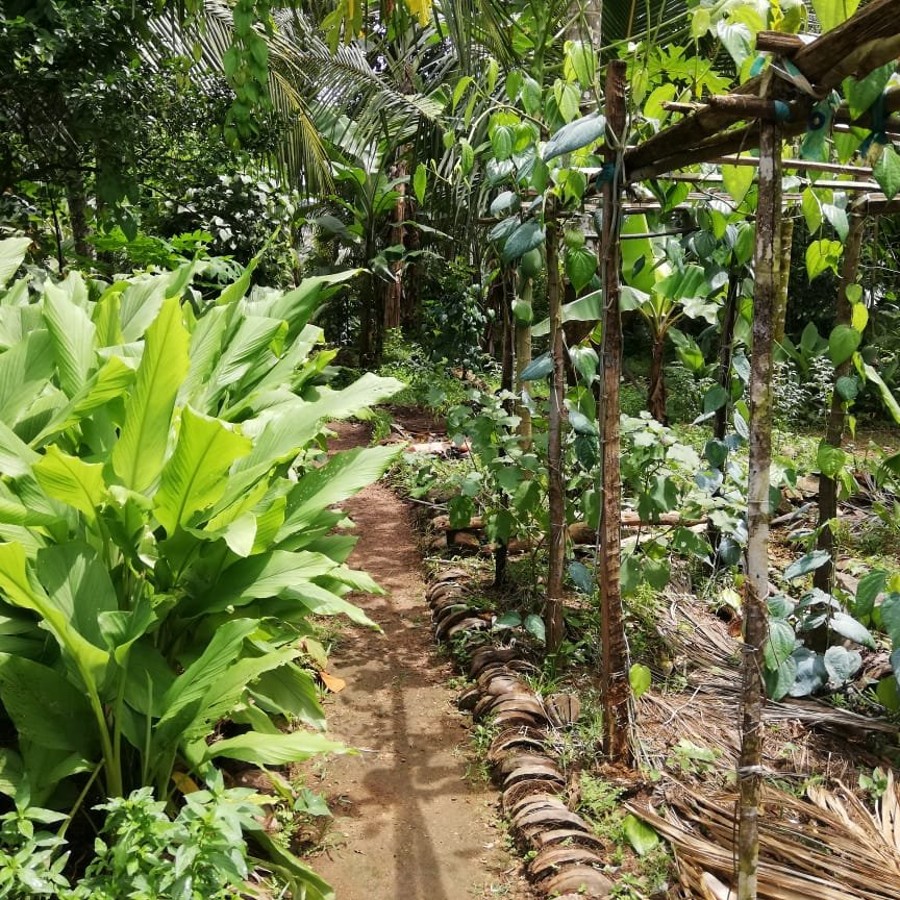
Hanwella, Sri Lanka
Panaluwa Farmers is a group of small-scale farmers that practice organic agricultural methods and cultivate toxin-free fruits and vegetables for their local community. They maintain a diversity of crops, build soil health, and conserve water through mulching and other techniques. Group members save seeds and produce compost, vermicompost, liquid fertilizers, and pest repellents from natural, locally available materials. Panaluwa Farmers works with Sri Lanka Human Development Foundation to promote natural farming techniques, reduce carbon emissions, and protect local biodiversity and indigenous seeds. They are verified organic under a local participatory guarantee system (PGS).
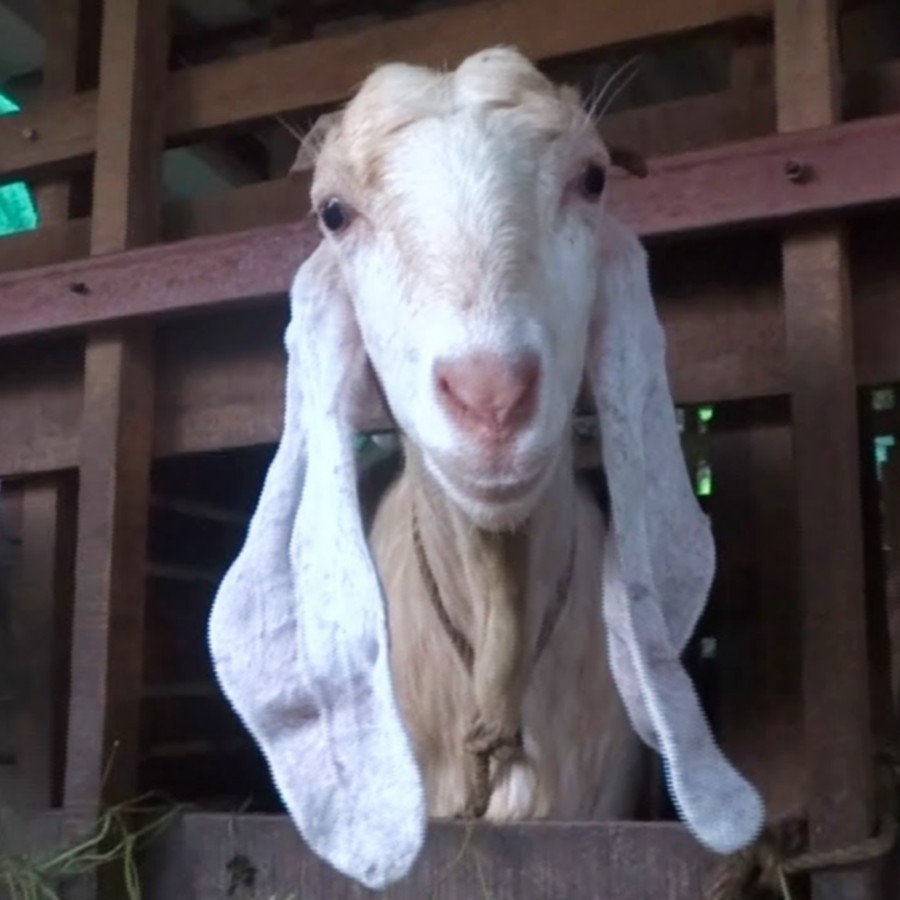
Watareka, Sri Lanka
Saviya Farm raises goats according to free range standards and sells natural goat milk, yogurt, and goat dung fertilizer in their local community. The animals have enough outdoor pasture and indoor housing for natural behavior. They are naturally bred on the farm, and kids are not separated from their mothers. Saviya Farm works with Sri Lanka Human Development Foundation to promote natural farming techniques and reduce carbon emissions. They are verified free range under a local participatory guarantee system (PGS).
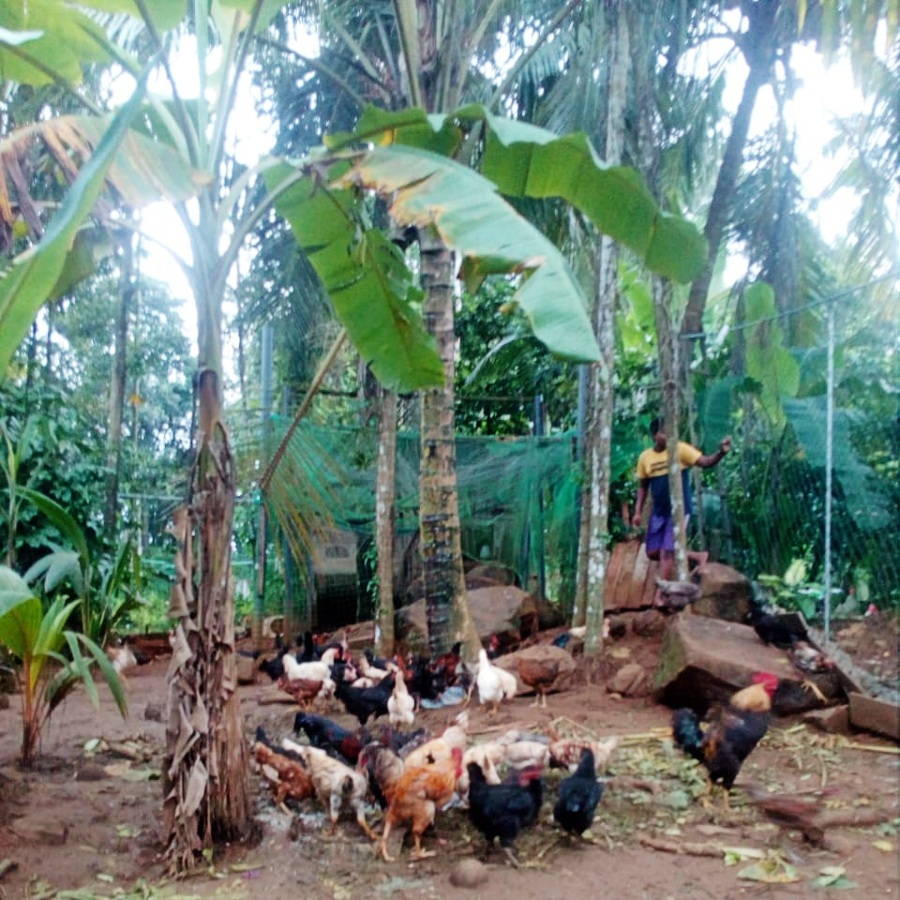
Diriya Farm raises chickens according to free range standards and sells eggs in their local community. The pasture area is a home garden with shade, vegetation, access to fresh water, and protection from predators. The birds have enough space for natural behavior. Poultry litter is donated to local farmers as organic fertilizer. Diriya Farm works with Sri Lanka Human Development Foundation to promote natural farming techniques and reduce carbon emissions. They are verified free range under a local participatory guarantee system (PGS).
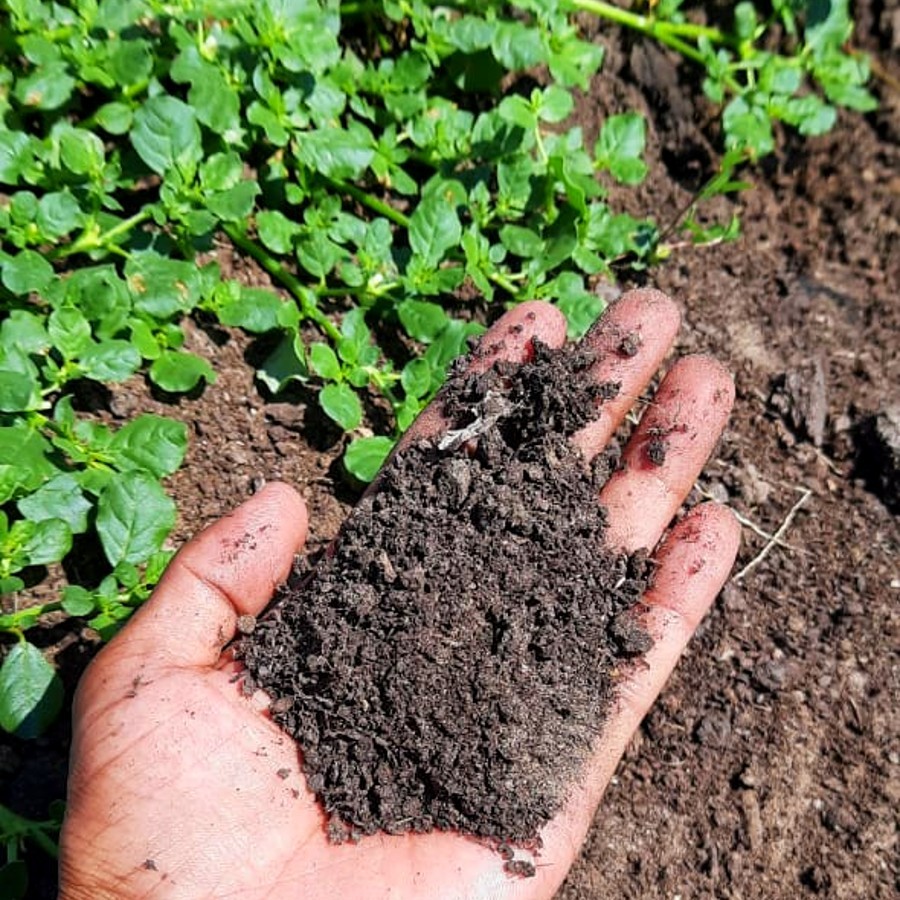
Vakarai, Sri Lanka
Ilankathir Natural Farming Producer Group is a cluster of small-scale organic farmers in eastern Sri Lanka committed to growing affordable natural food and protecting the environment. They produce their own compost, liquid fertilizers, and biopesticides from locally available materials. Crops include dry zone vegetables, leafy greens, and legumes. Members also grow ginger, cassava, sugar cane, banana, papaya, guava, lemon, mango, coconut, and moringa. Ilankathir Natural Farming Producer Group is verified under a local organic participatory guarantee system (PGS).
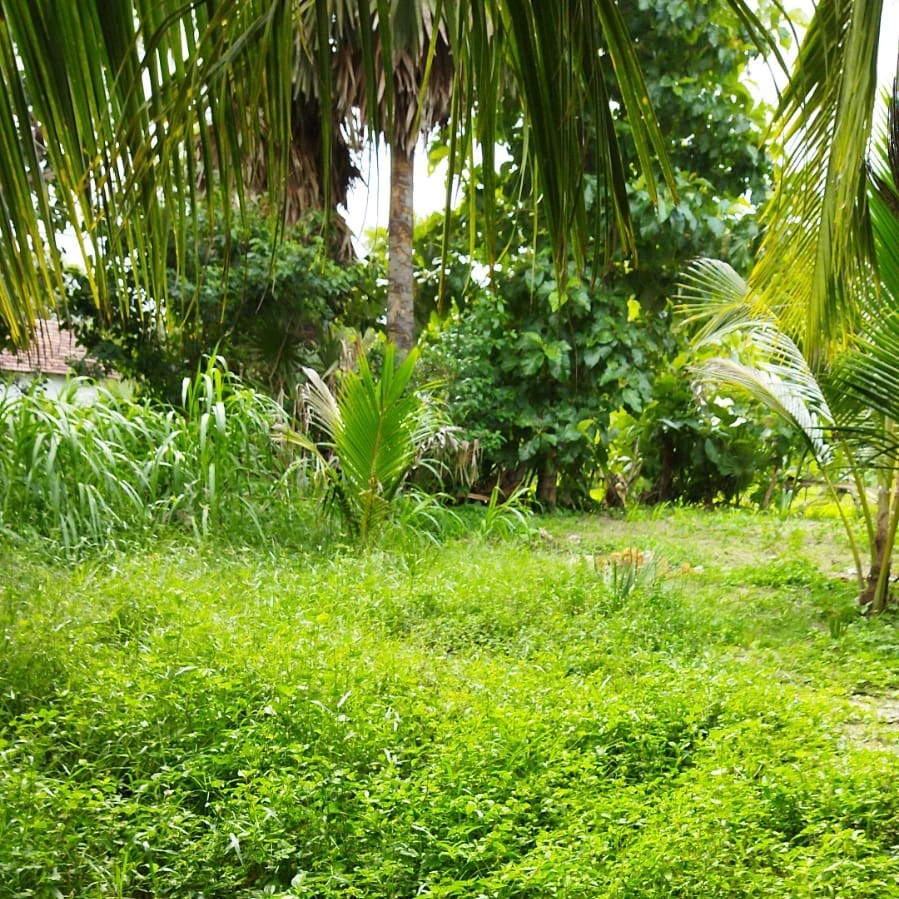
Perillaveli, Sri Lanka
Vesamatta Veeran Natural Farming Producer Group is a cluster of small-scale organic farmers in eastern Sri Lanka committed to growing affordable natural food and protecting the environment. They produce their own compost, liquid fertilizers, and biopesticides from locally available materials. Crops include dry zone vegetables, leafy greens, and legumes. Members also grow rice, cassava, ginger, turmeric, passion fruit, pineapple, banana, papaya, guava, lemon, lime, orange, mango, coconut, and jackfruit. Vesamatta Veeran Natural Farming Producer Group is verified under a local organic participatory guarantee system (PGS).
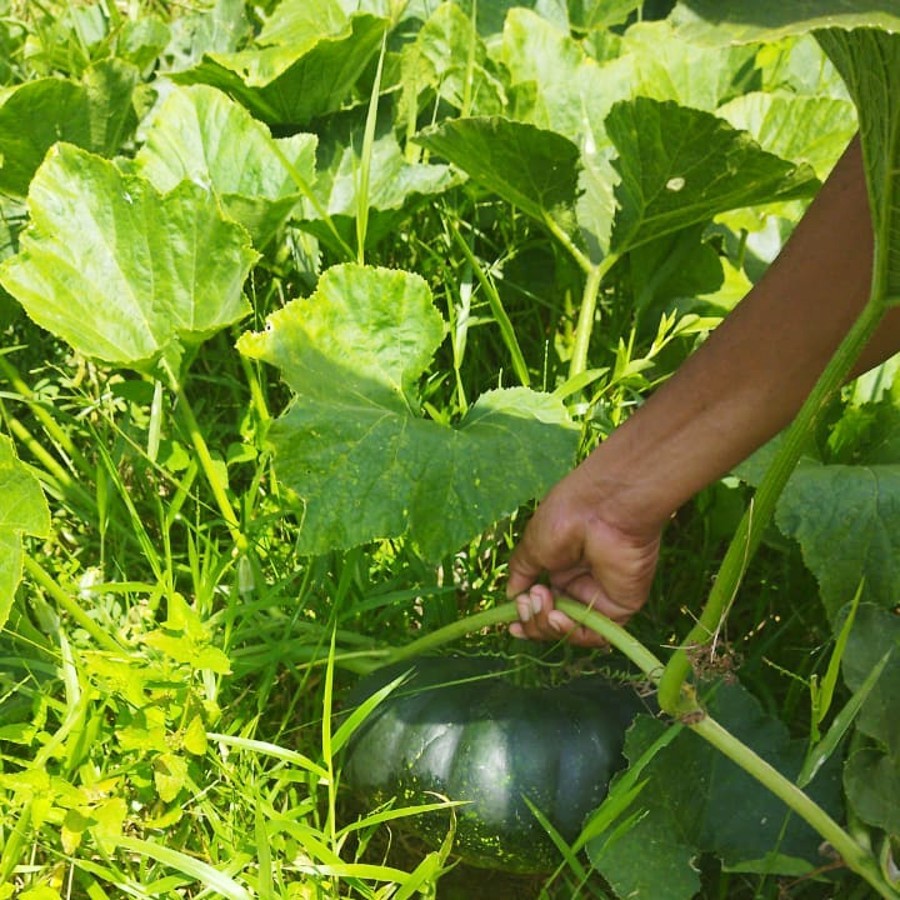
Vakarai, Sri Lanka
Thalal Natural Farming Producer Group is a cluster of small-scale organic farmers in eastern Sri Lanka committed to growing affordable natural food and protecting the environment. They produce their own compost, liquid fertilizers, and biopesticides from locally available materials. Crops include dry zone vegetables, leafy greens, and legumes. Members also grow rice, cassava, banana, guava, orange, mango, coconut, cashew, and moringa. Thalal Natural Farming Producer Group is verified under a local organic participatory guarantee system (PGS).
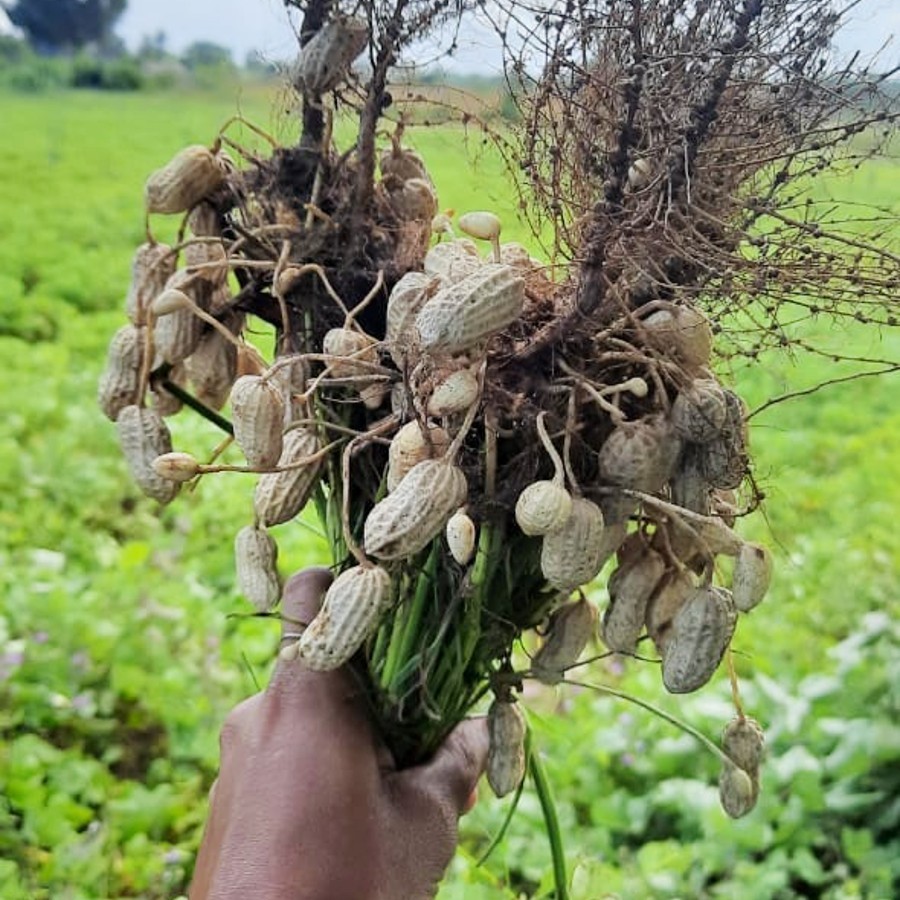
Vakarai, Sri Lanka
Vidiyal Natural Farming Producer Group is a cluster of small-scale organic farmers in eastern Sri Lanka committed to growing affordable natural food and protecting the environment. They produce their own compost, liquid fertilizers, and biopesticides from locally available materials. Crops include dry zone vegetables, leafy greens, and legumes. Members also grow ginger, turmeric, cassava, sugar cane, pineapple, banana, papaya, guava, lemon, orange, ambarella, mango, coconut, and moringa. Vidiyal Natural Farming Producer Group is verified under a local organic participatory guarantee system (PGS).
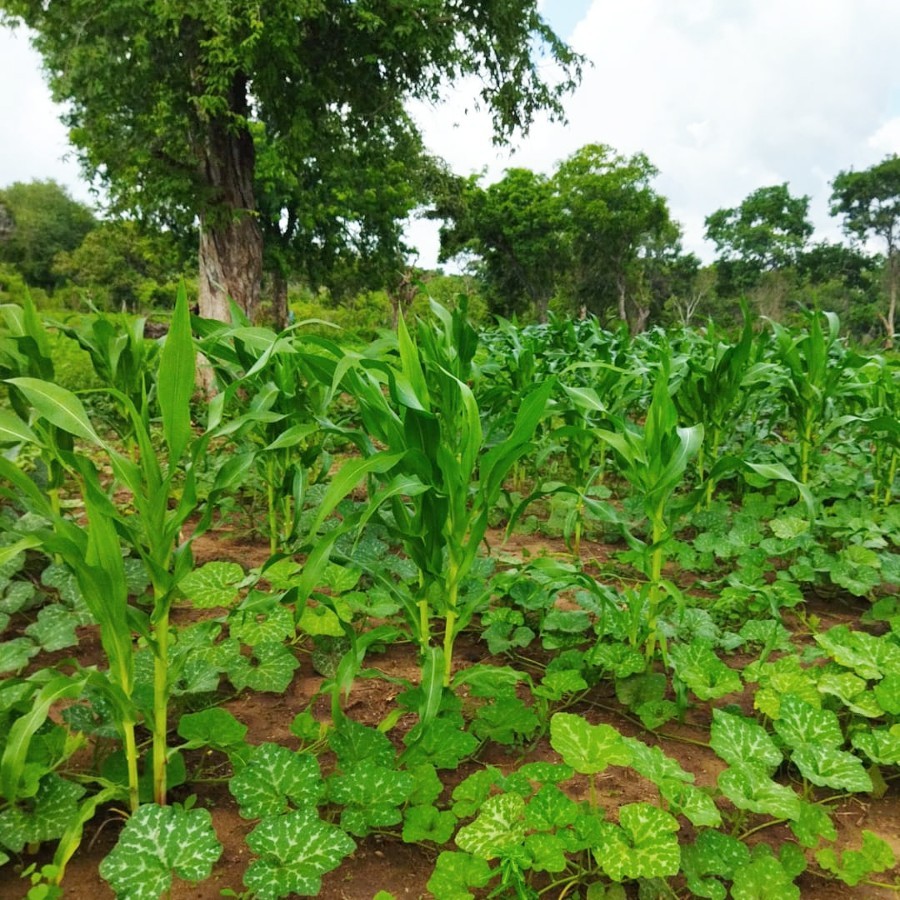
Perillaveli, Sri Lanka
Meddu Natural Farming Producer Group is a cluster of small-scale organic farmers in eastern Sri Lanka committed to growing affordable natural food and protecting the environment. They produce their own compost, liquid fertilizers, and biopesticides from locally available materials. Crops include dry zone vegetables, leafy greens, and legumes. Members also grow ginger, turmeric, cassava, banana, papaya, guava, lime, orange, mango, king coconut, coconut, cashew, jackfruit, and moringa. Meddu Natural Farming Producer Group is verified under a local organic participatory guarantee system (PGS).
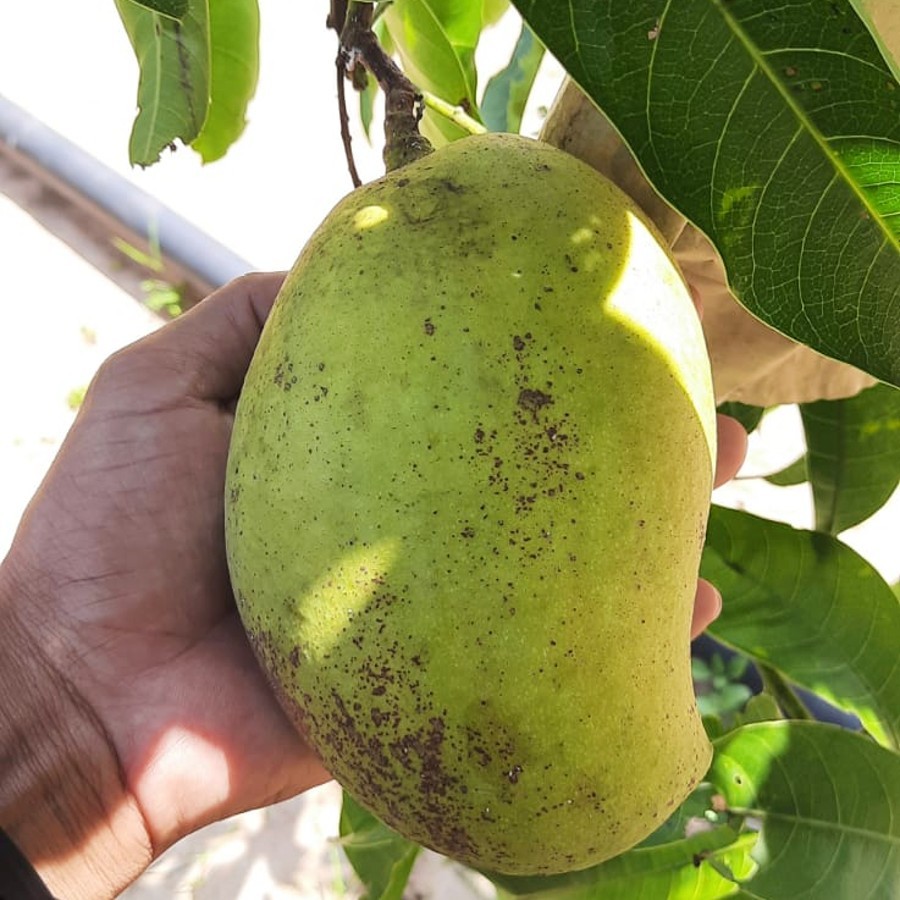
Vakarai, Sri Lanka
Elurichi Natural Farming Producer Group is a cluster of small-scale organic farmers in eastern Sri Lanka committed to growing affordable natural food and protecting the environment. They produce their own compost, liquid fertilizers, and biopesticides from locally available materials. Crops include dry zone vegetables, leafy greens, and legumes. Members also grow ginger, cassava, cinnamon, passion fruit, pineapple, banana, papaya, guava, wood apple, lemon, lime, orange, mango, coconut, cashew, jackfruit, and moringa. Elurichi Natural Farming Producer Group is verified under a local organic participatory guarantee system (PGS).
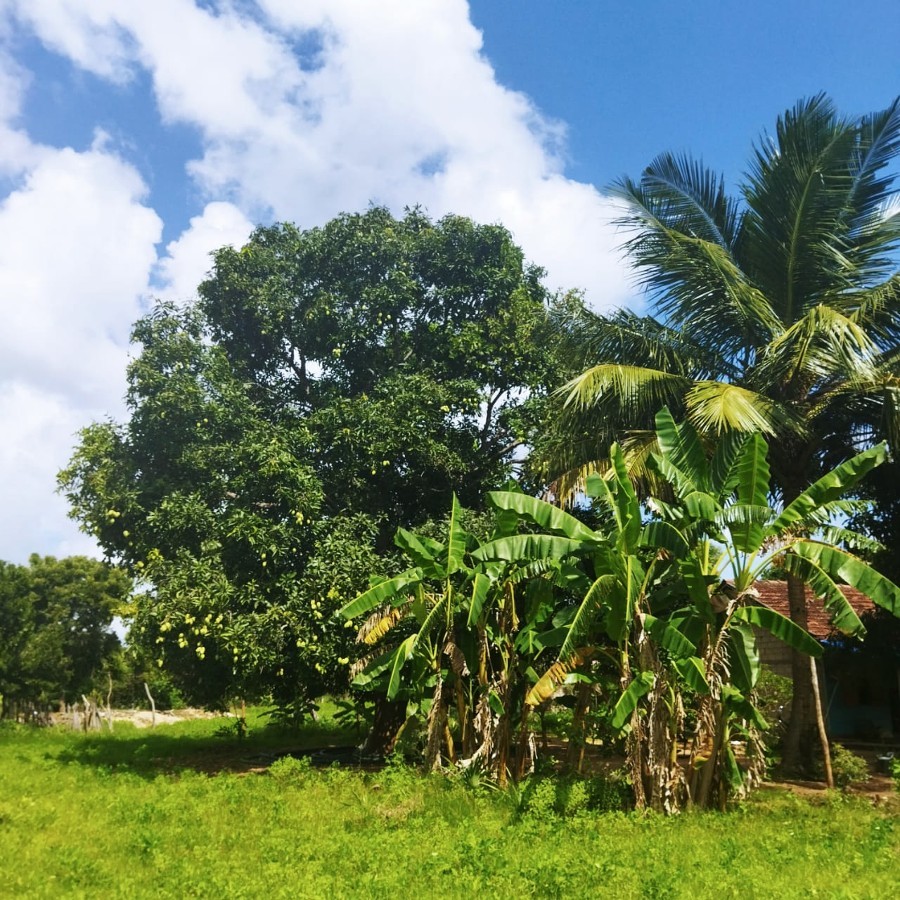
Perillaveli, Sri Lanka
Maathulai Natural Farming Producer Group is a cluster of small-scale organic farmers in eastern Sri Lanka committed to growing affordable natural food and protecting the environment. They produce their own compost, liquid fertilizers, and biopesticides from locally available materials. Crops include dry zone vegetables, leafy greens, and legumes. Members also grow ginger, cassava, pineapple, banana, papaya, guava, lime, lemon, orange, soursop, mango, coconut, cashew, jackfruit, and moringa. Maathulai Natural Farming Producer Group is verified under a local organic participatory guarantee system (PGS).
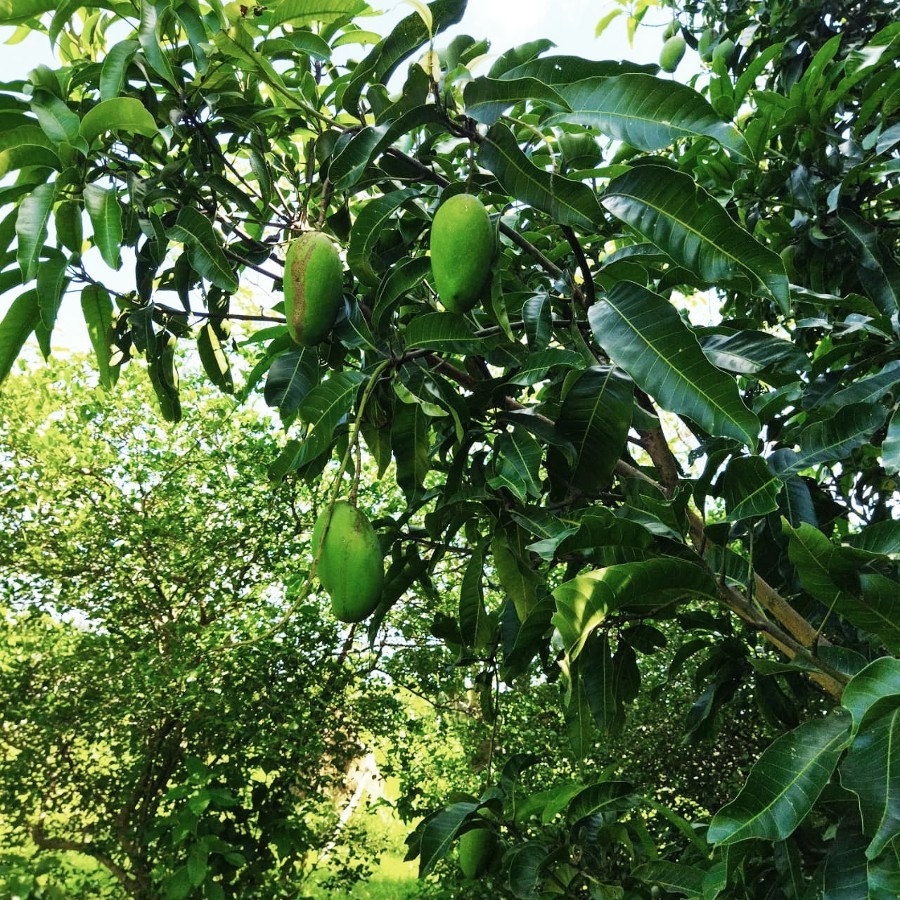
Perellavelly Natural Farming Producer Group is a cluster of small-scale organic farmers in eastern Sri Lanka committed to growing affordable natural food and protecting the environment. They produce their own compost, liquid fertilizers, and biopesticides from locally available materials. Crops include dry zone vegetables, leafy greens, and legumes. Members also grow rice, cassava, ginger, turmeric, banana, papaya, guava, avocado, orange, mango, coconut, and cashew. Perellavelly Natural Farming Producer Group is verified under a local organic participatory guarantee system (PGS).
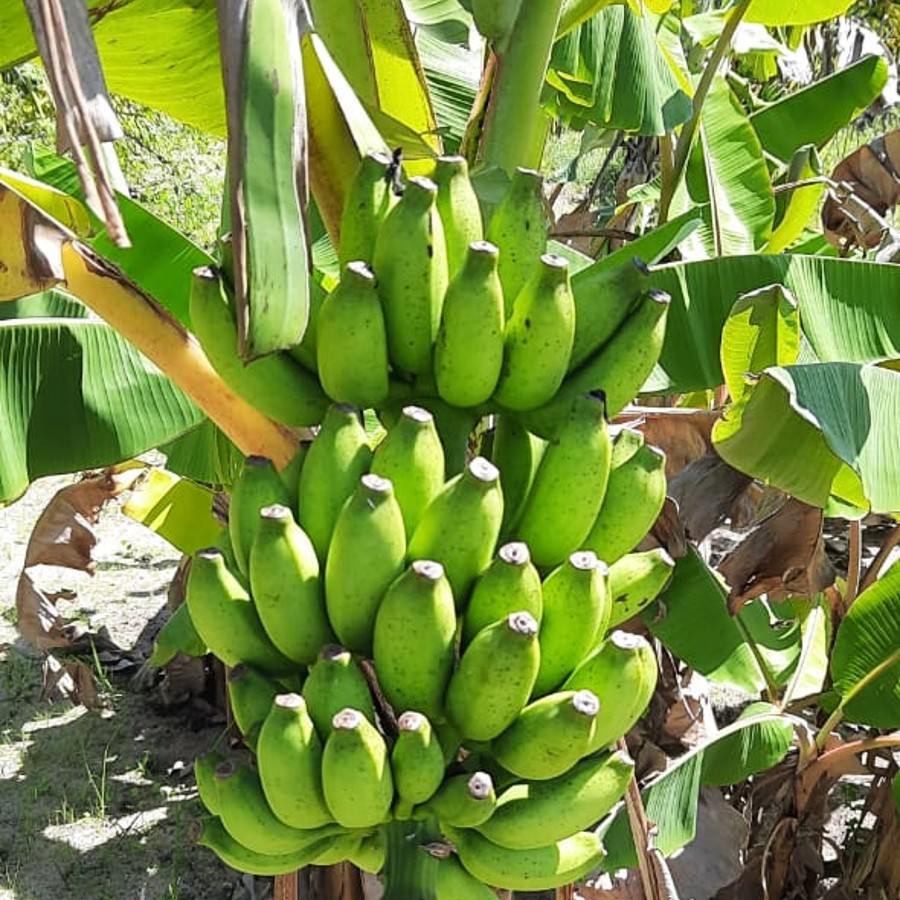
Vakarai, Sri Lanka
Kathiravan Natural Farming Producer Group is a cluster of small-scale organic farmers in eastern Sri Lanka committed to growing affordable natural food and protecting the environment. They produce their own compost, liquid fertilizers, and biopesticides from locally available materials. Crops include dry zone vegetables, leafy greens, and legumes. Members also grow ginger, turmeric, cassava, sugar cane, banana, papaya, guava, lemon, mango, areca, coconut, jackfruit, and moringa. Kathiravan Natural Farming Producer Group is verified under a local organic participatory guarantee system (PGS).
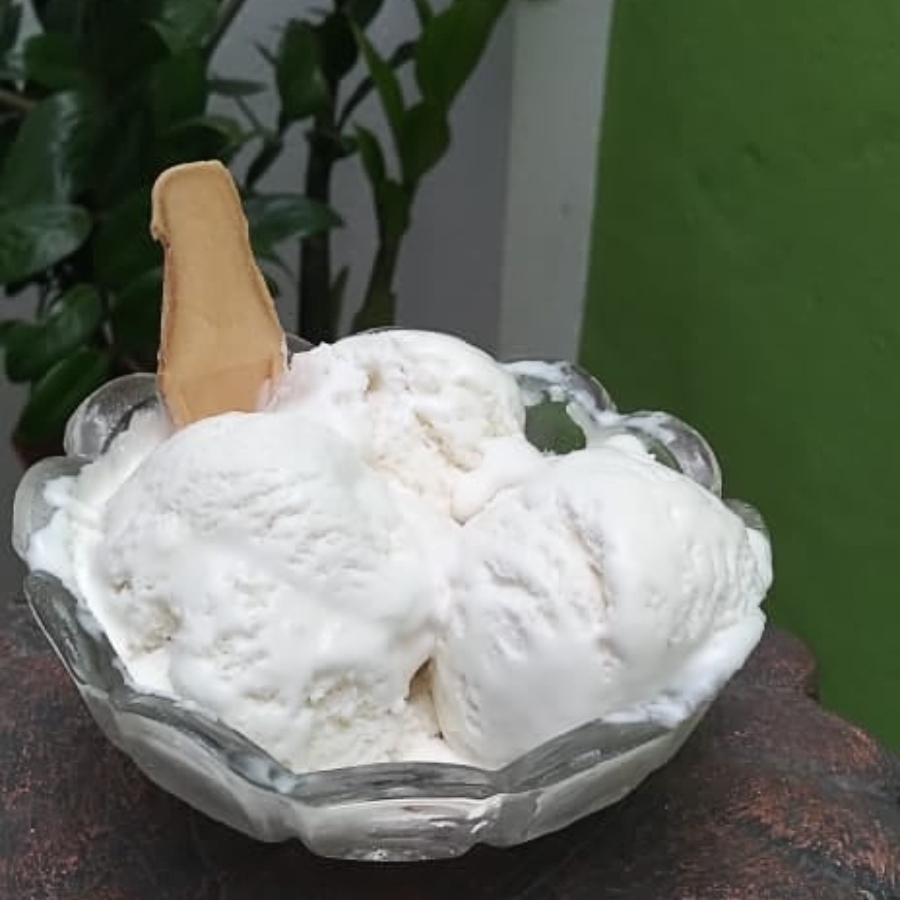
Wattala, Sri Lanka
Super Creamy Natural produces affordable natural ice cream, vegan ice cream, and yogurt made from local ingredients like coconut, jackfruit, anoda, and laulu. Their packaging is made from compostable and reusable materials. Single serving ice cream is sold in terracotta clay pots. Super Creamy Natural employs women from disadvantaged backgrounds and contributes 10 percent of profits to a women’s organization.
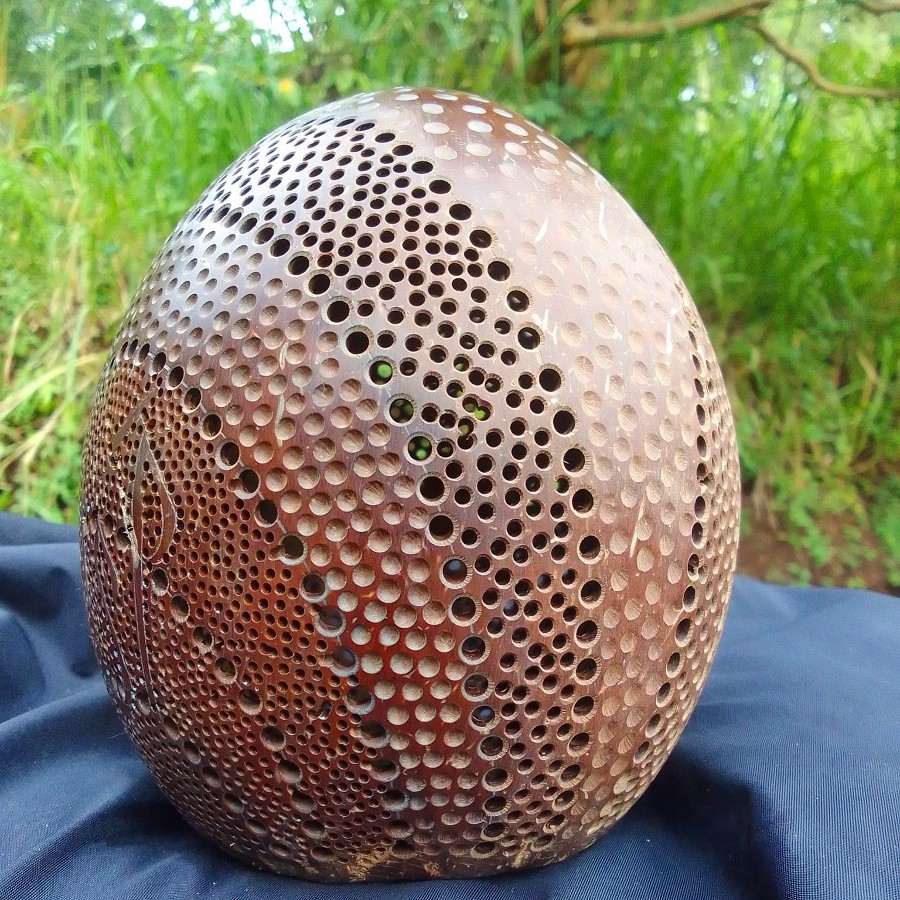
Hunuange Bogaskumburegammedda, Sri Lanka
Coco Jewellery transforms discarded coconut shells into rings, pendants, earrings, and housewares. They source raw materials from their local community and specialize in custom handcarved coconut shell products.
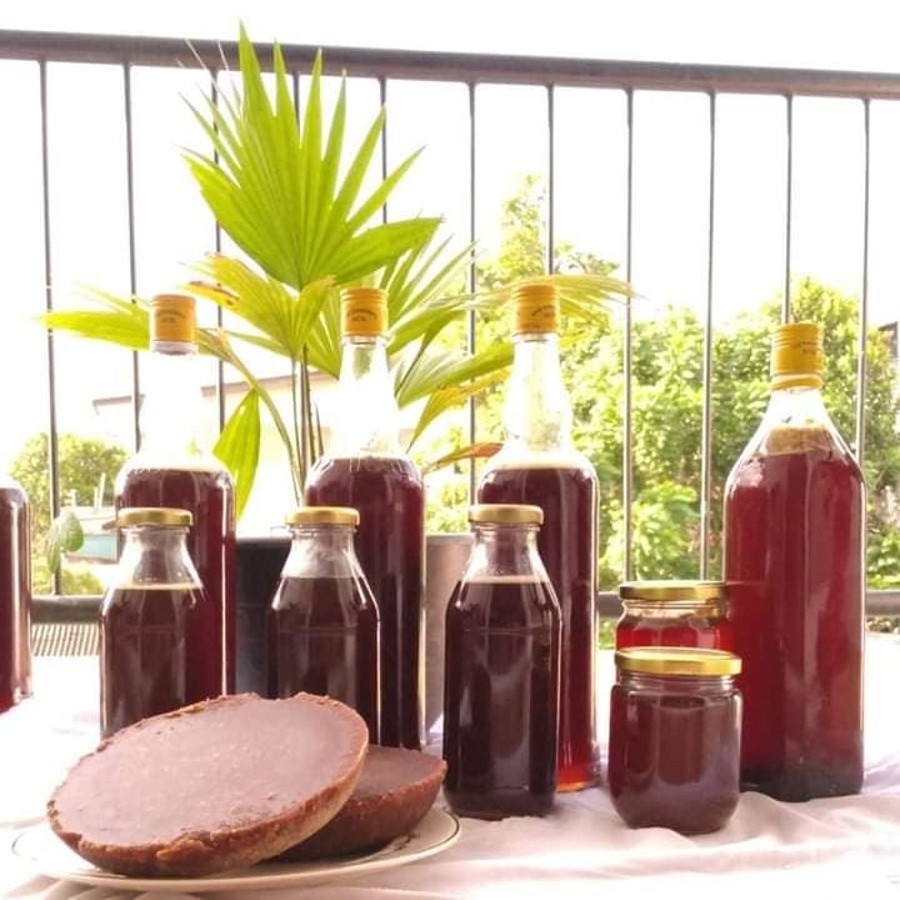
Dehiwala-Mount Lavinia, Sri Lanka
HMS Kithul House aims to support rural livelihoods and provide a healthy, local alternative to imported refined sugar and flour. They work with kithul tapping families in the Welimada area to produce kithul flour from the pith of the kithul palm tree and kithul treacle, jaggery, jaggery with cinnamon, and jaggery with ginger from the sap. HMS Kithul House contributes to a local social service organization in Guruthalawa that helps low income families with food, housing, electricity and water connections, medical care, and school scholarships. They also fund and mentor local women that want to start their own businesses.
Know an initiative that’s good for people and good for the planet? The application is currently available in English, Sinhala, Tamil, Urdu, Spanish, and Japanese and started in Nepali: www.goodmarket.global/apply Want to help make it available in another language? Learn more about the community translation project here.